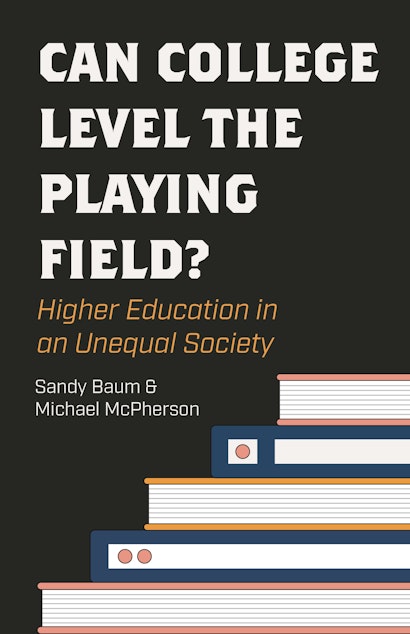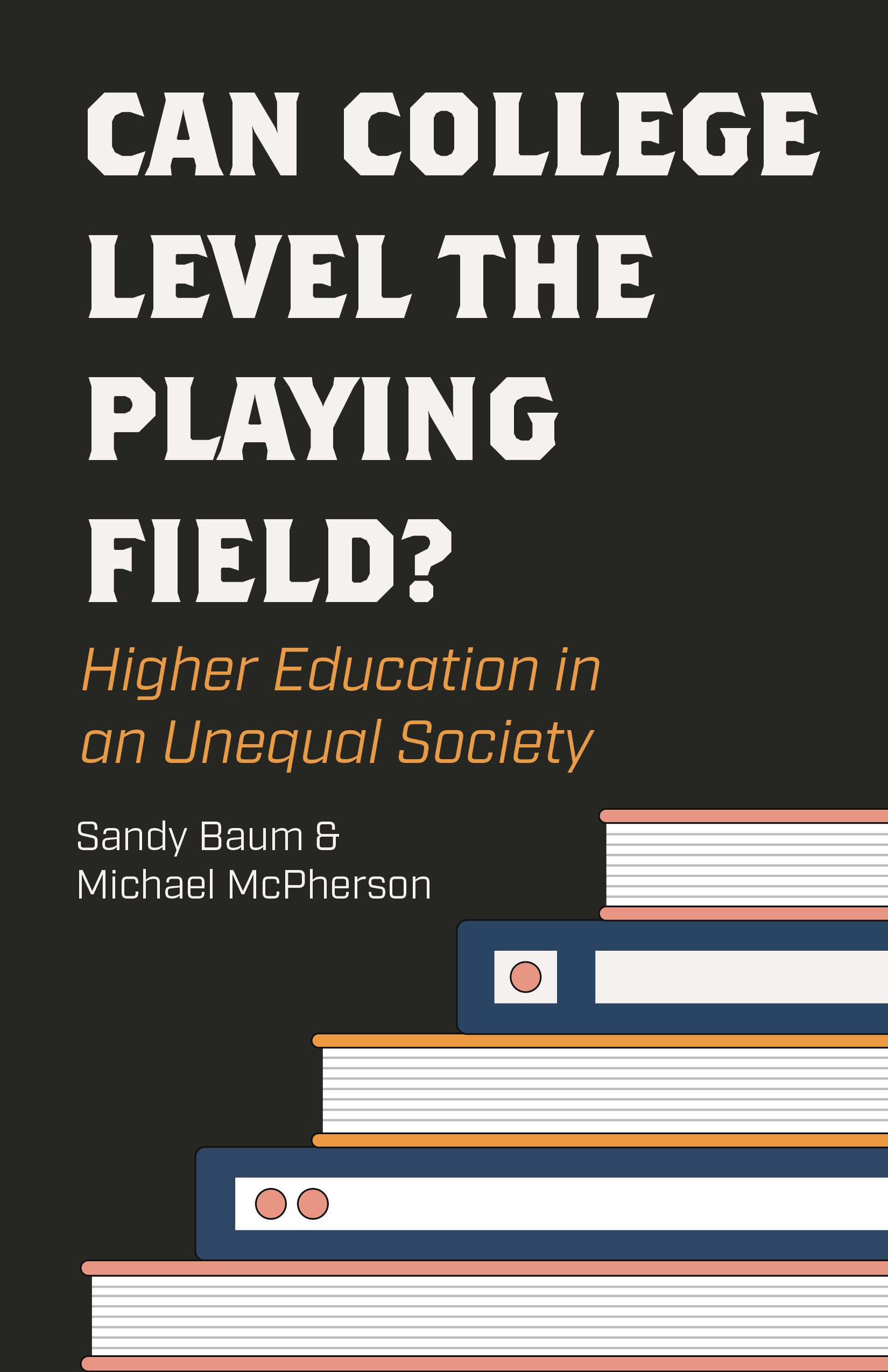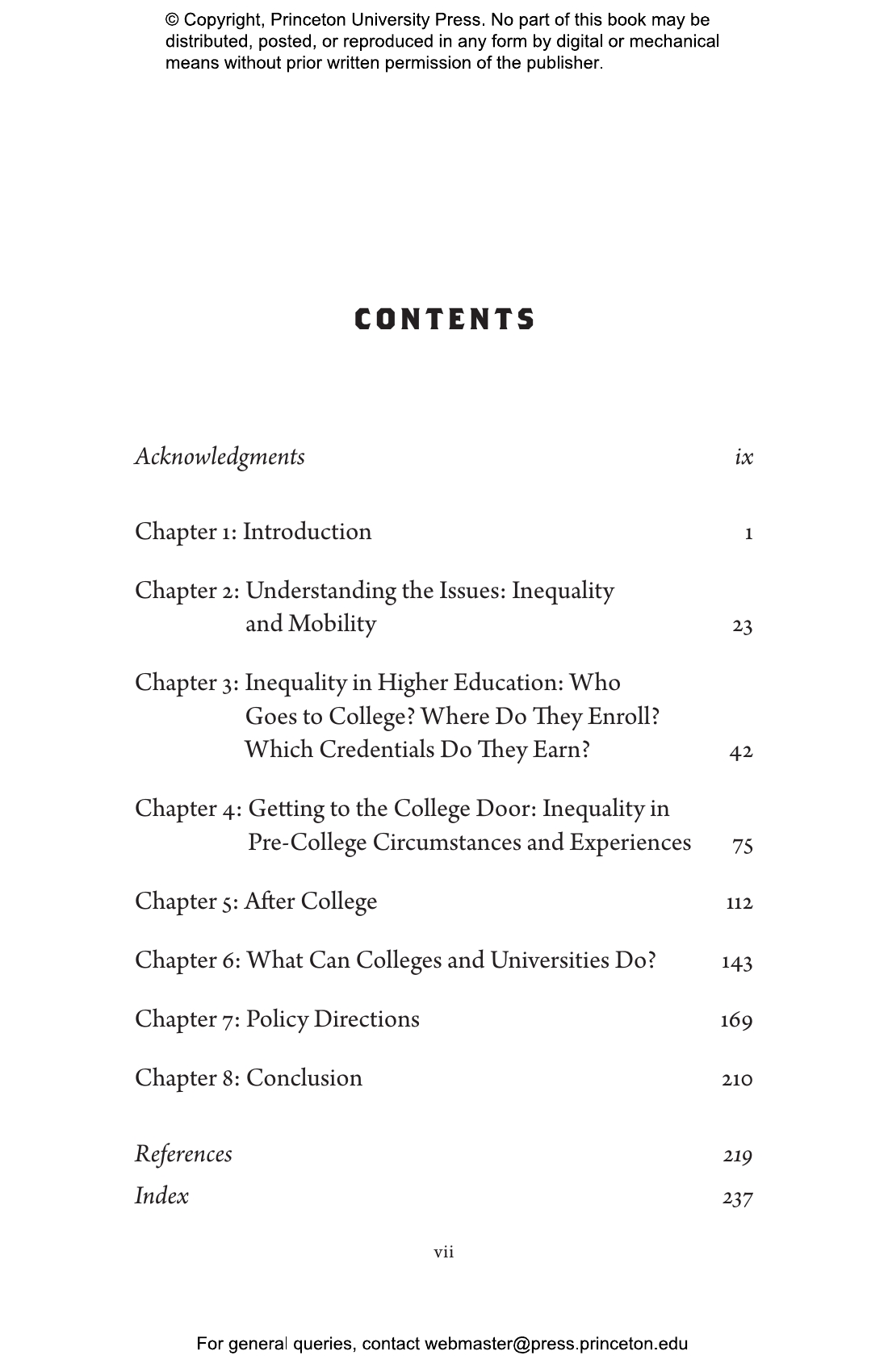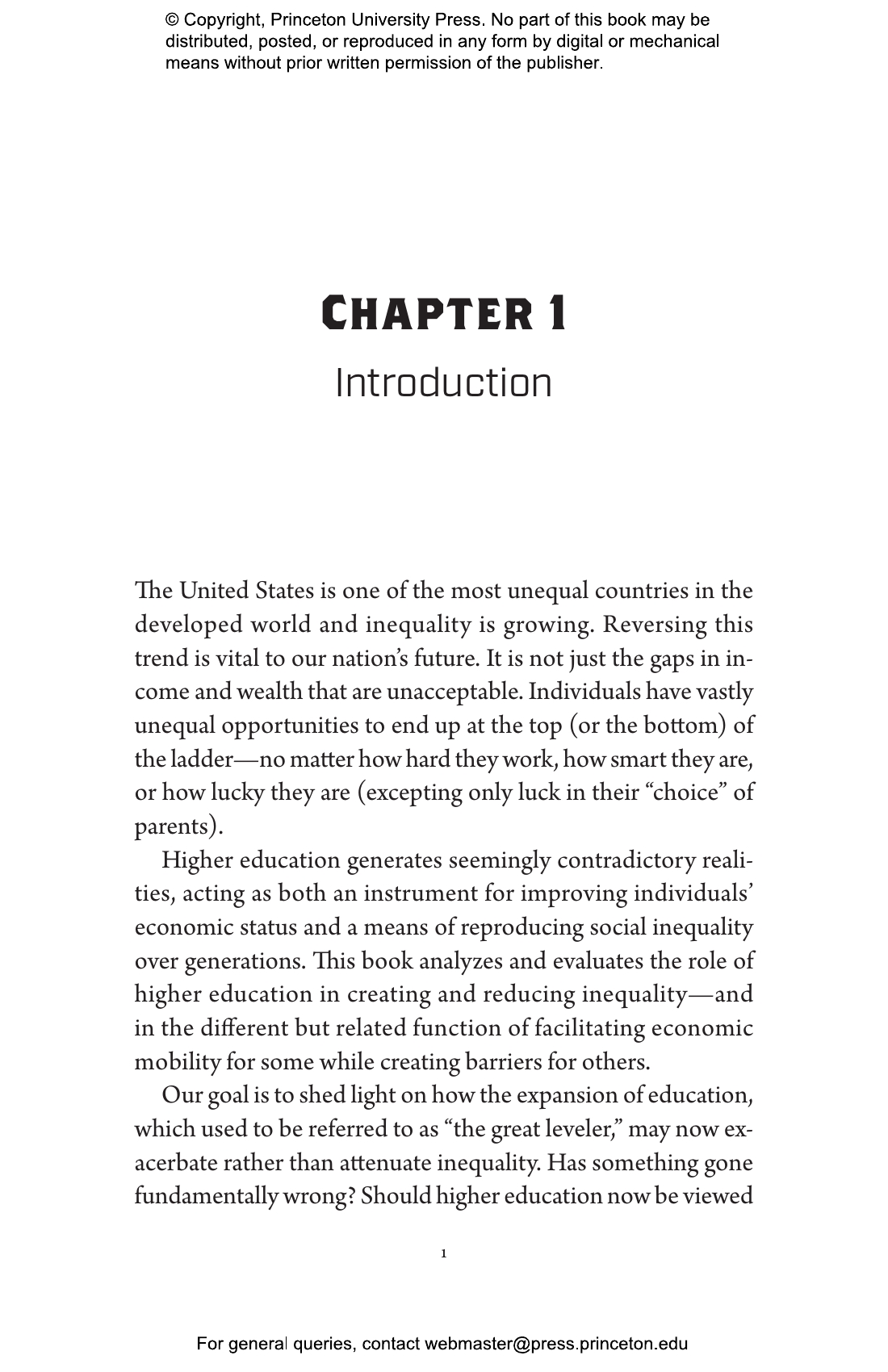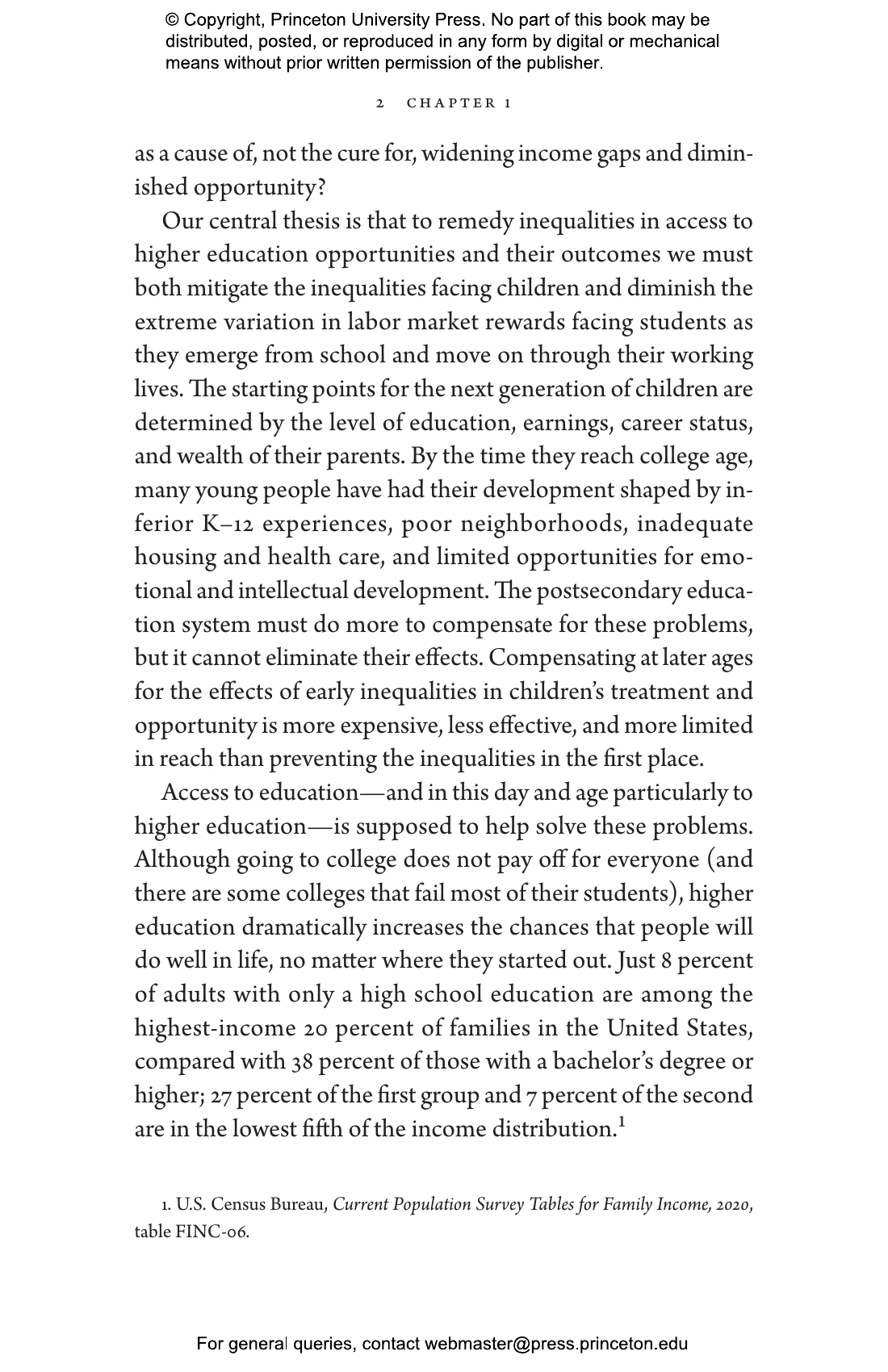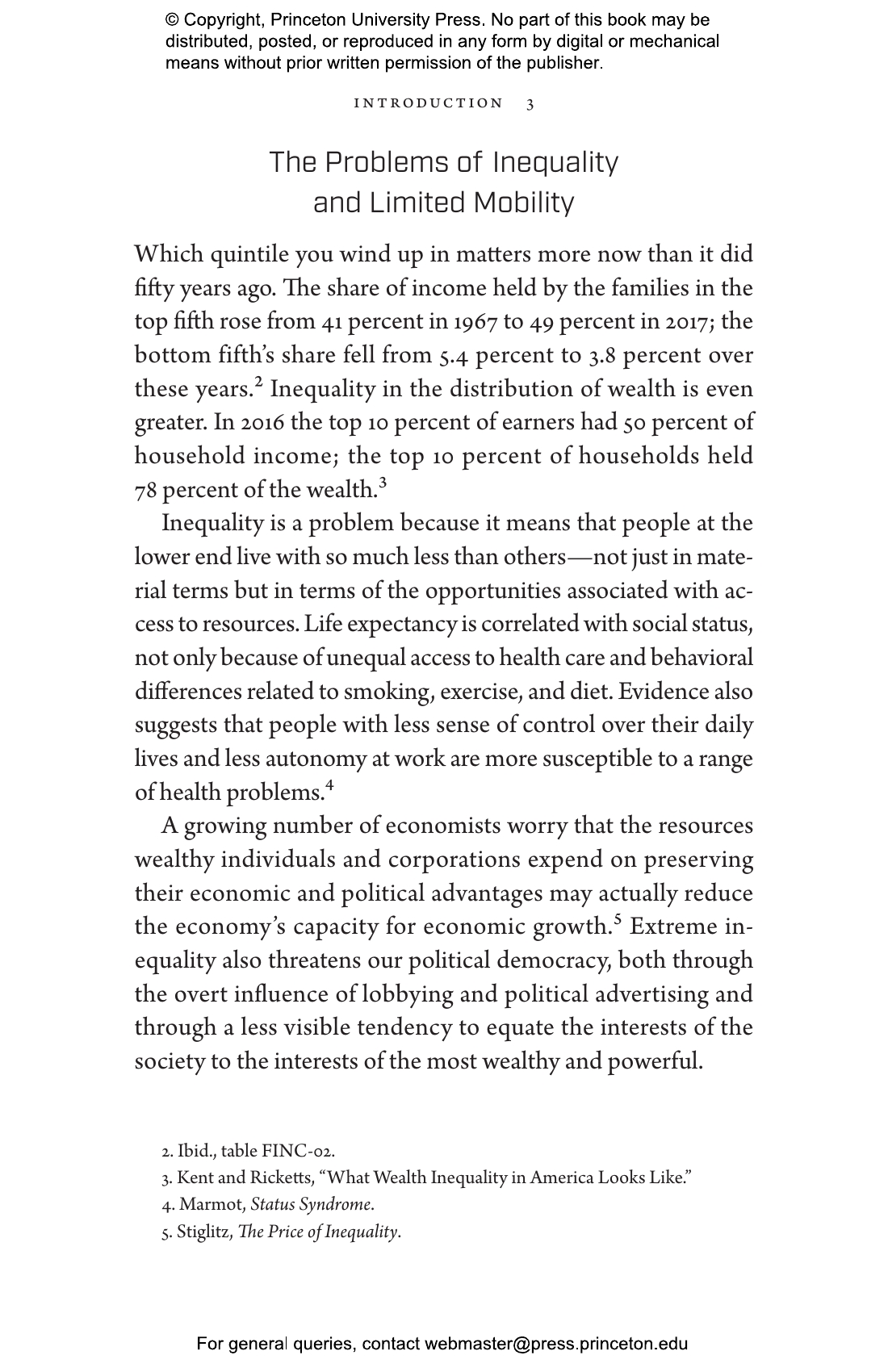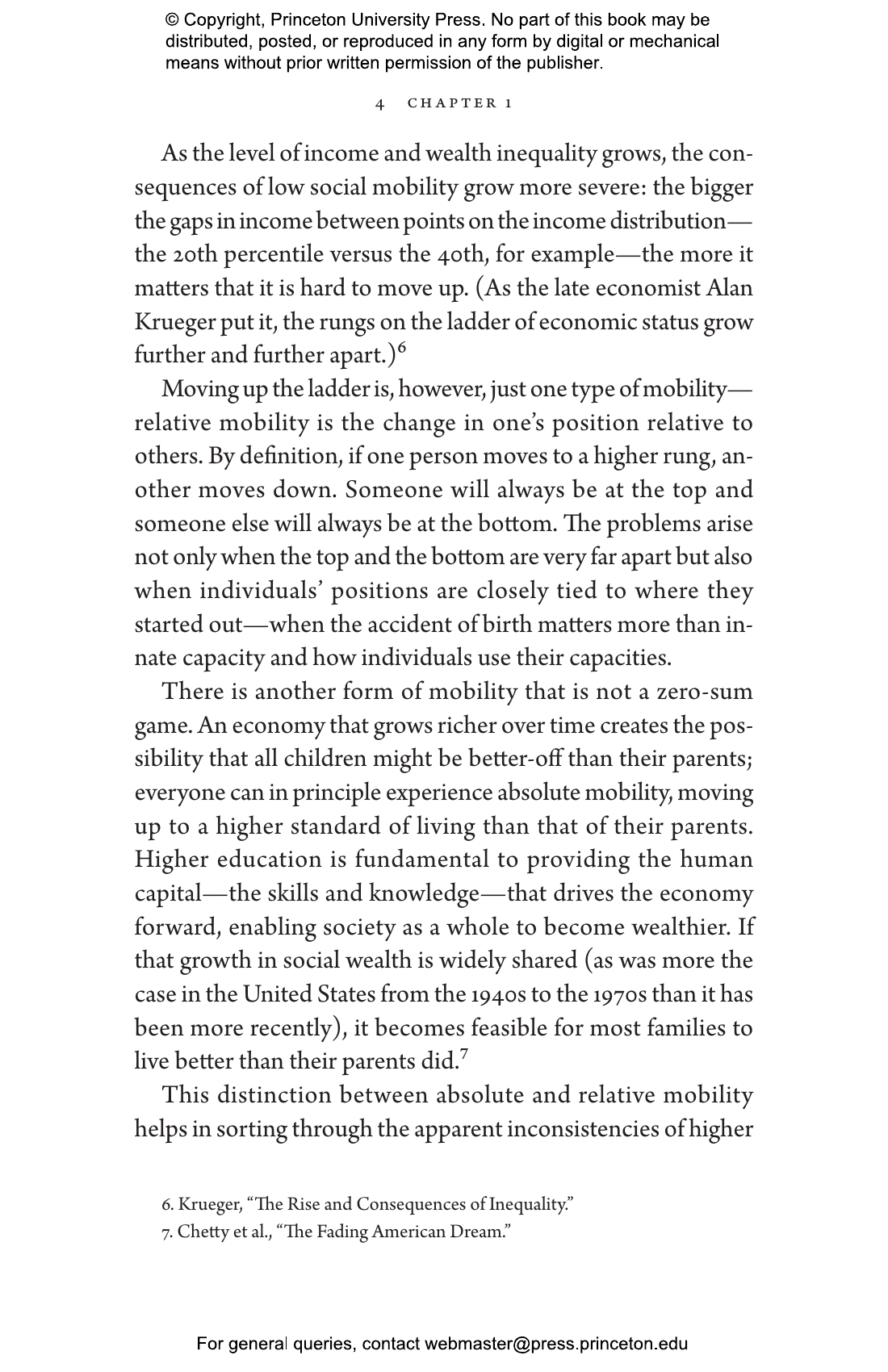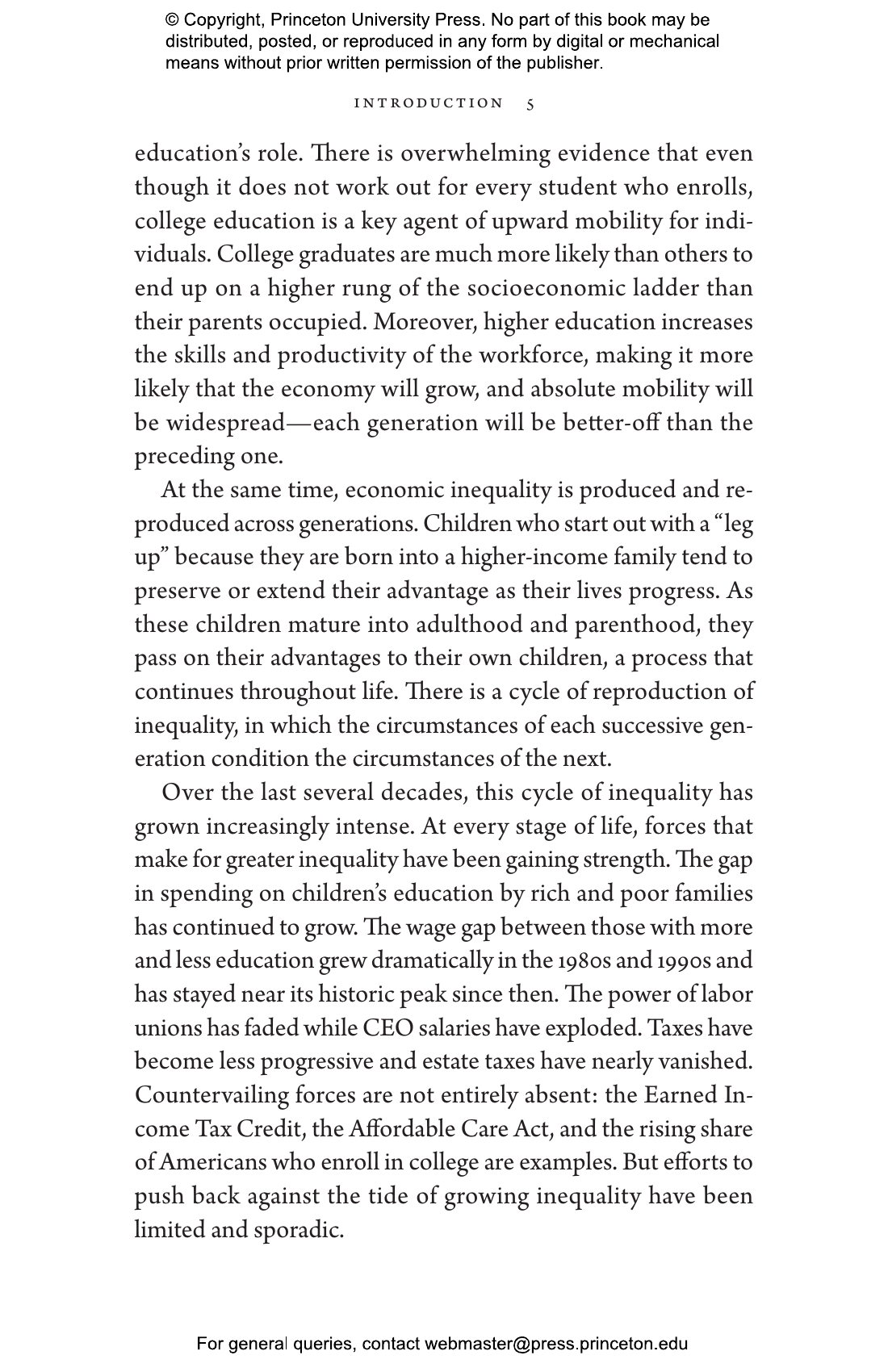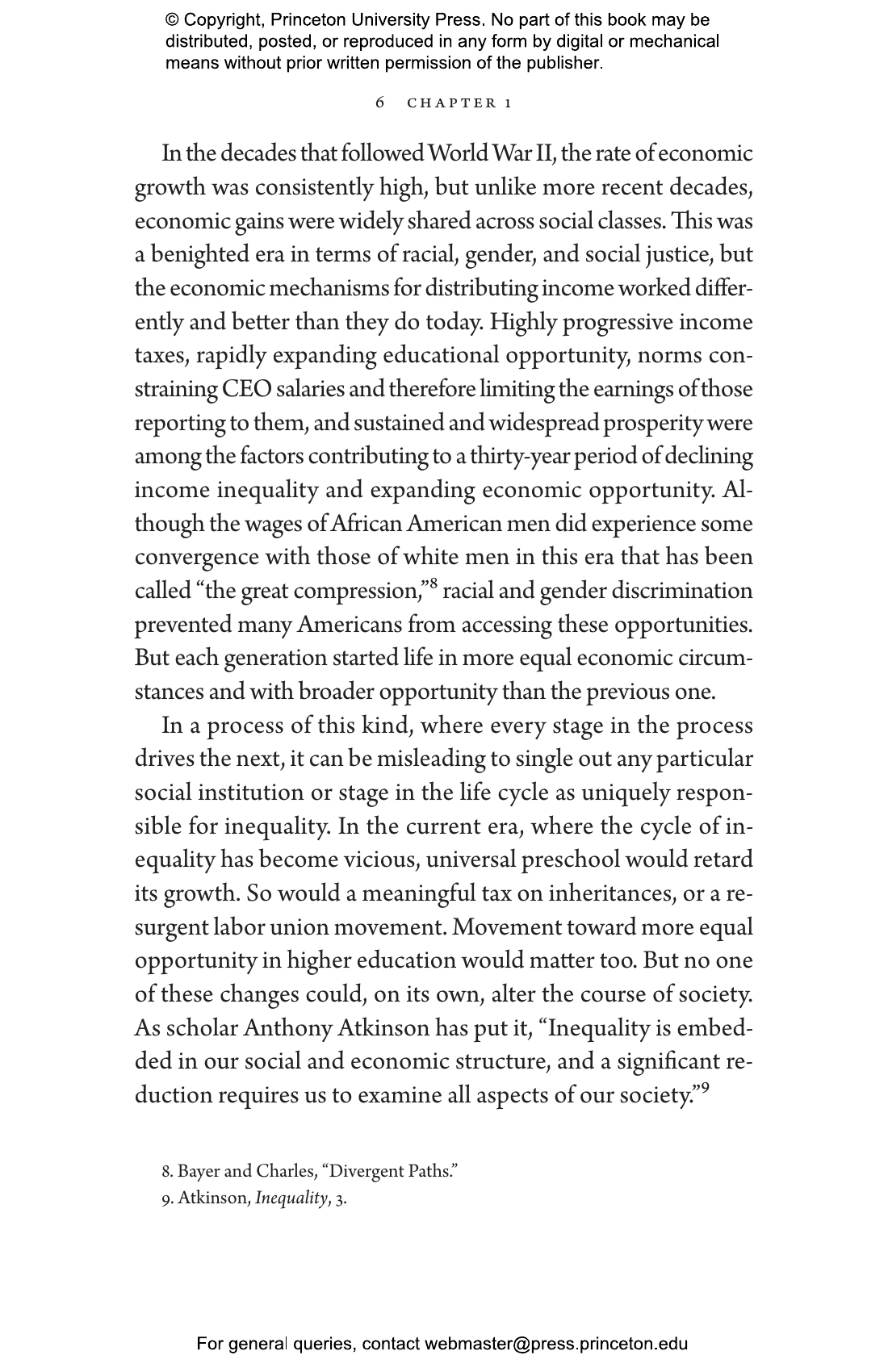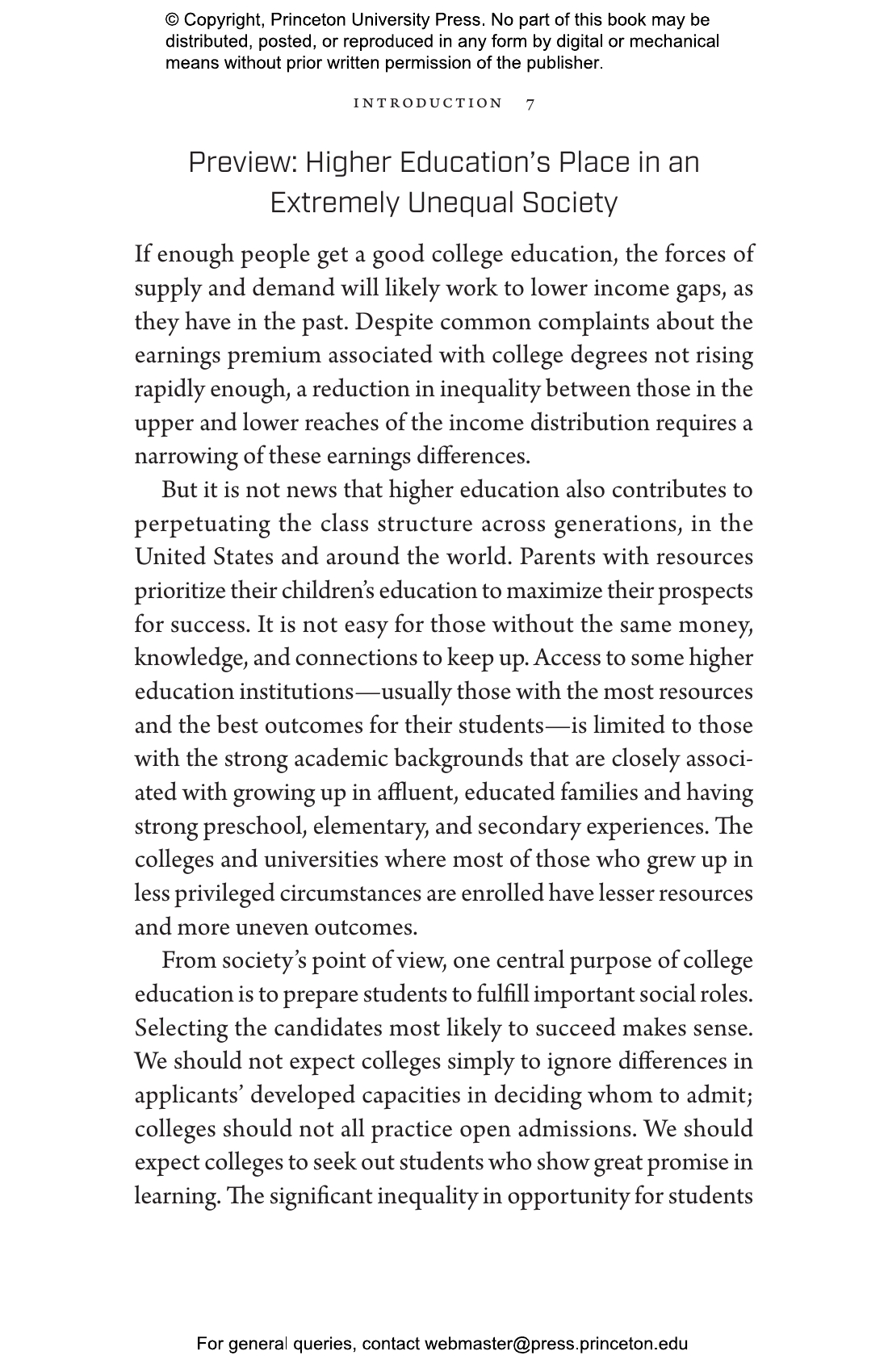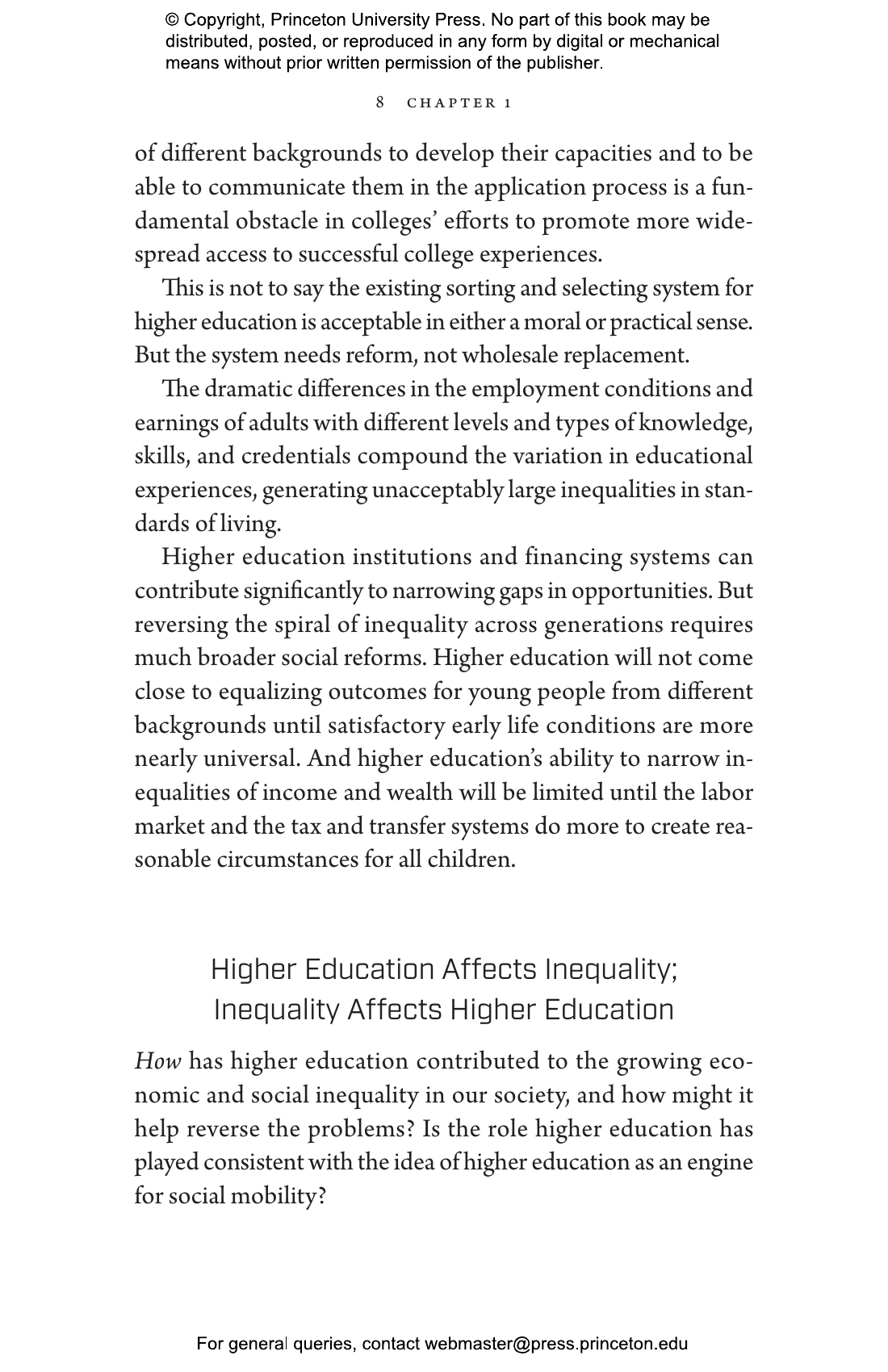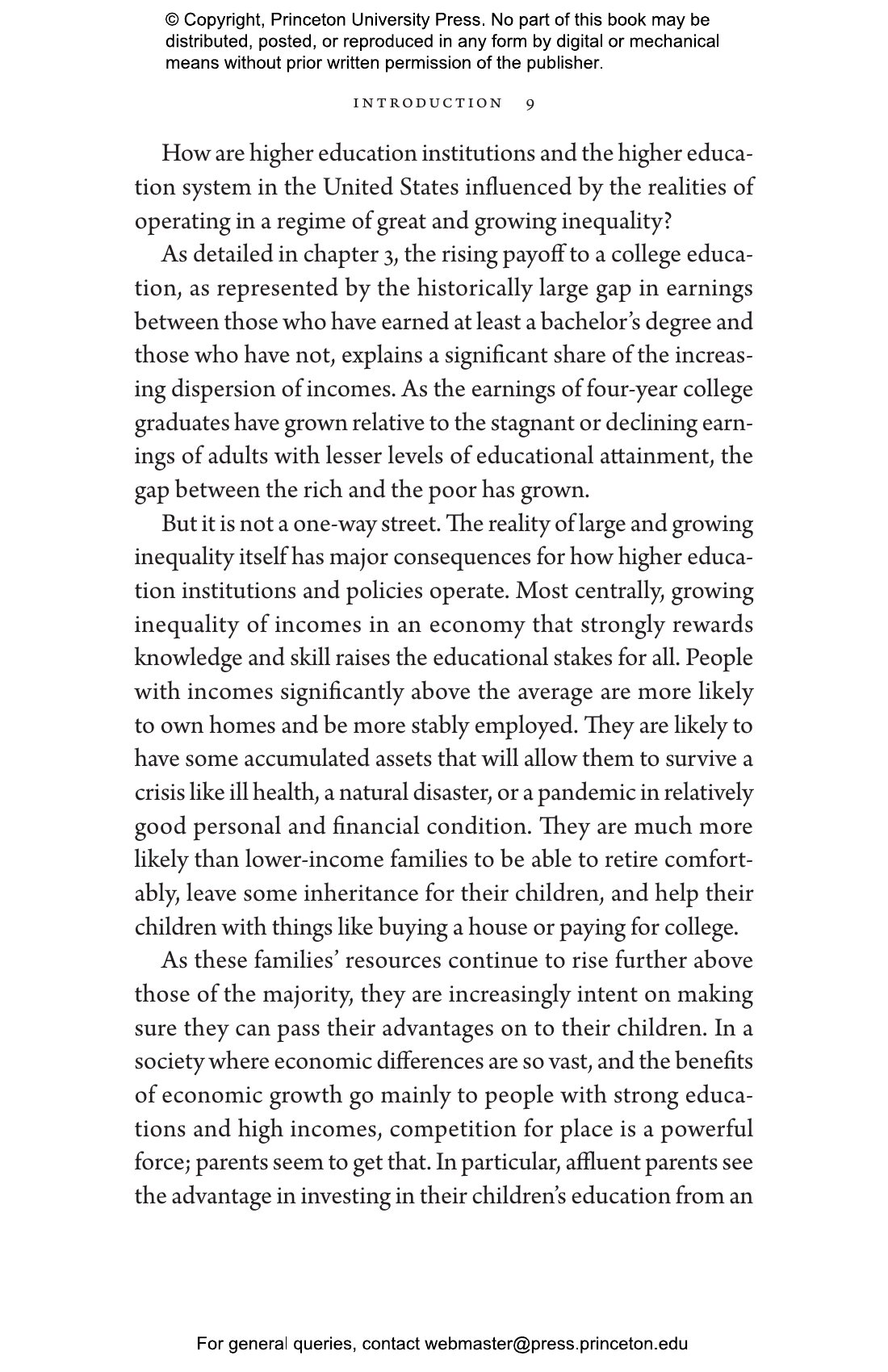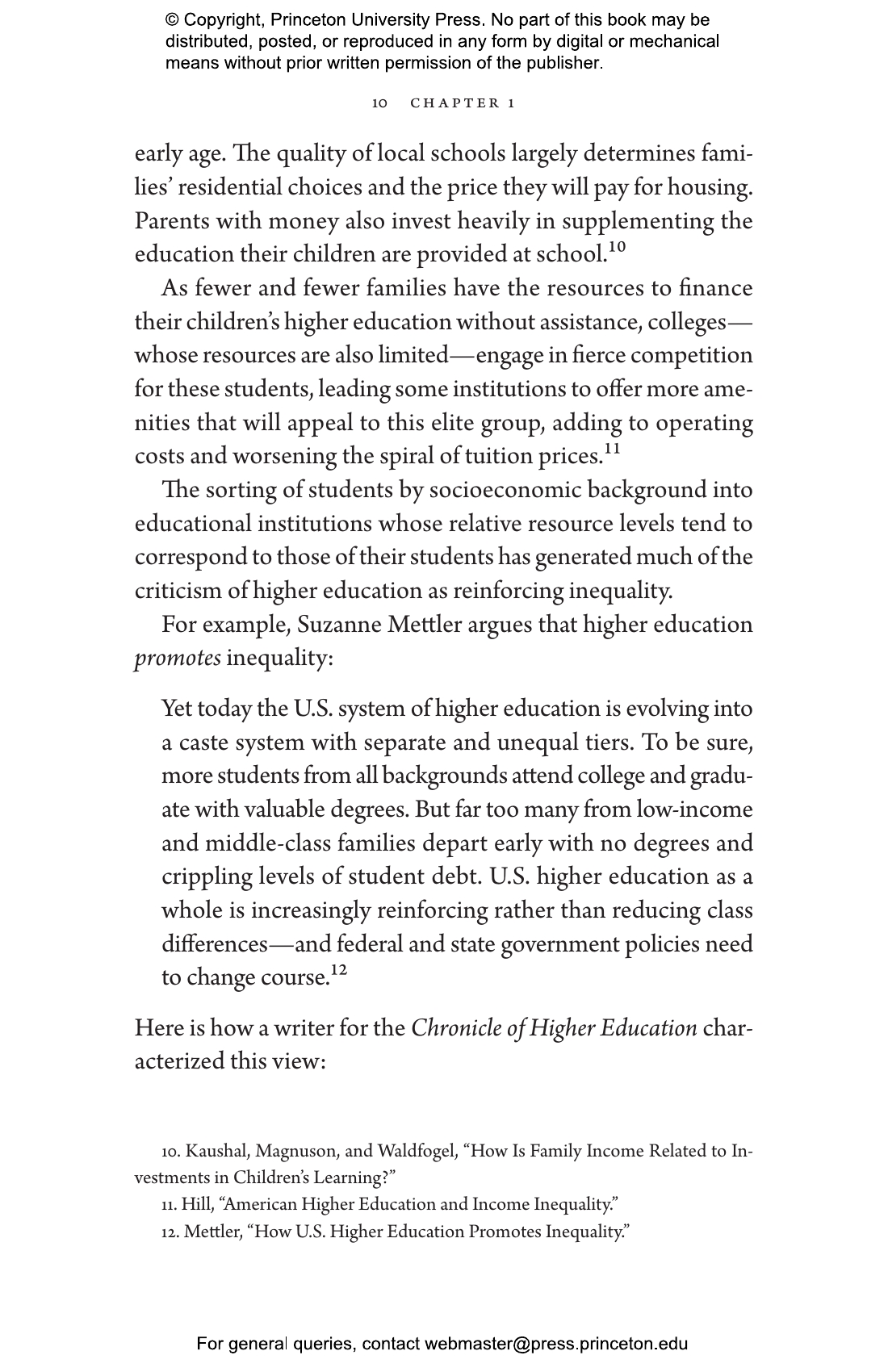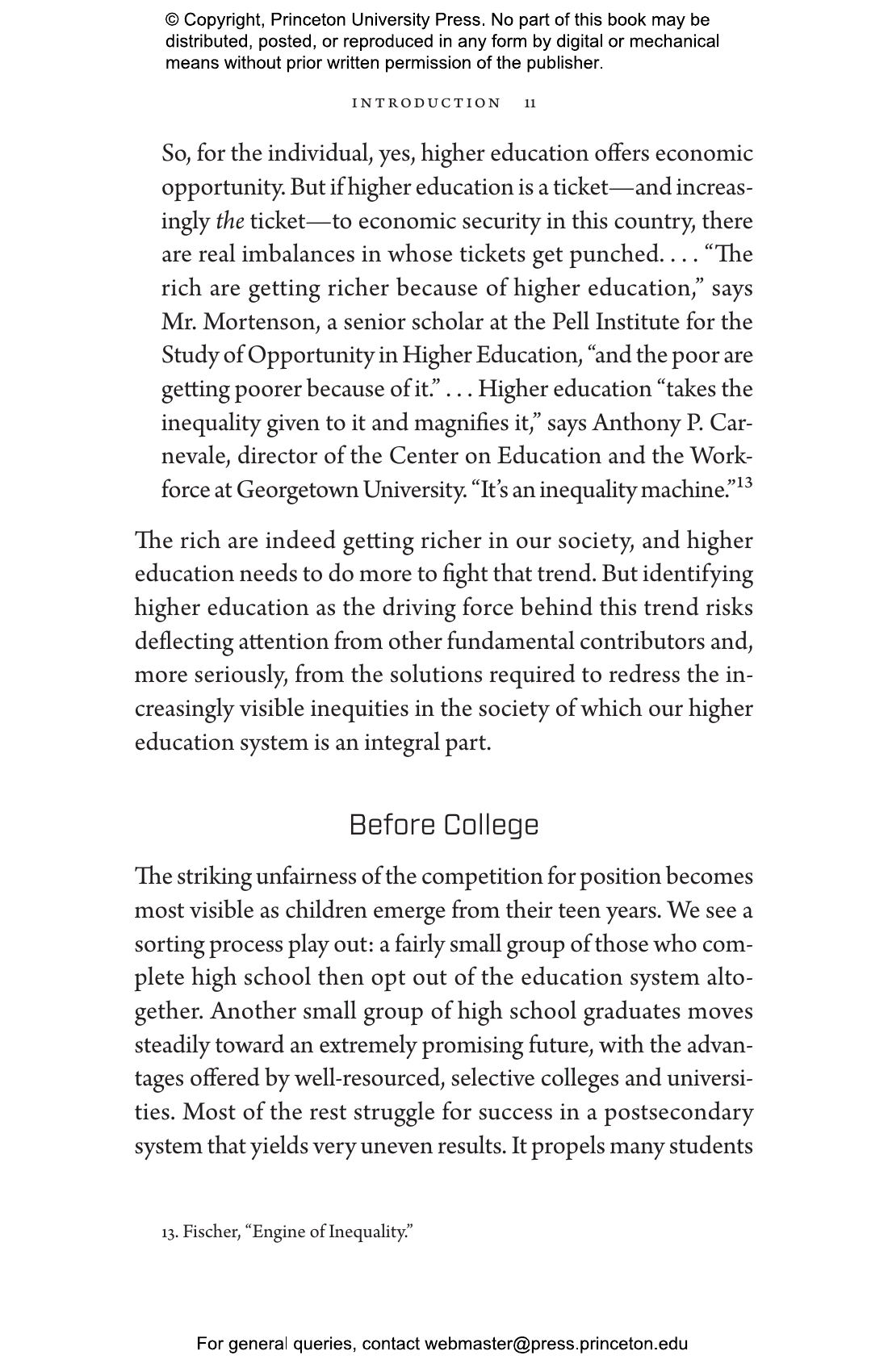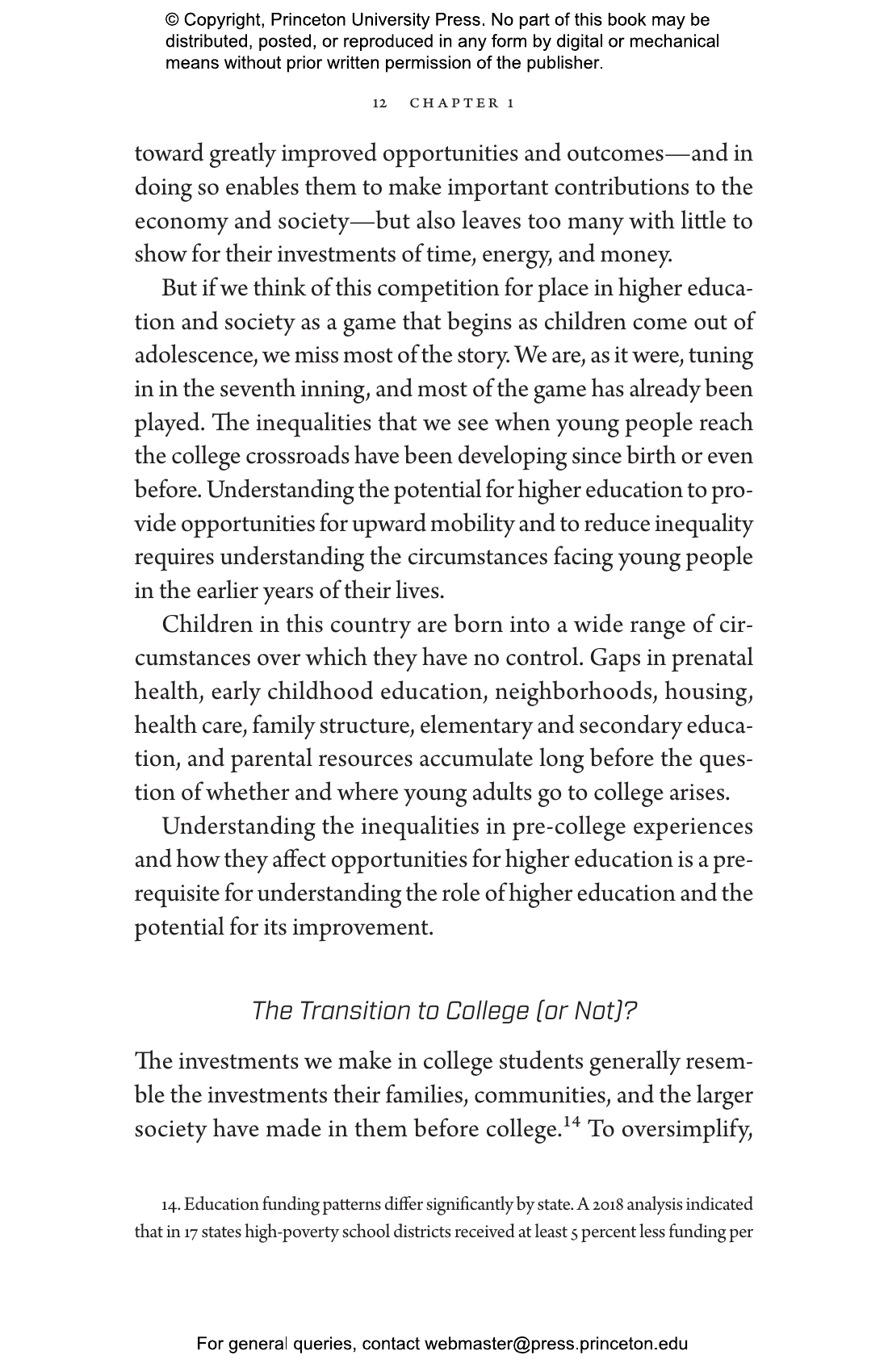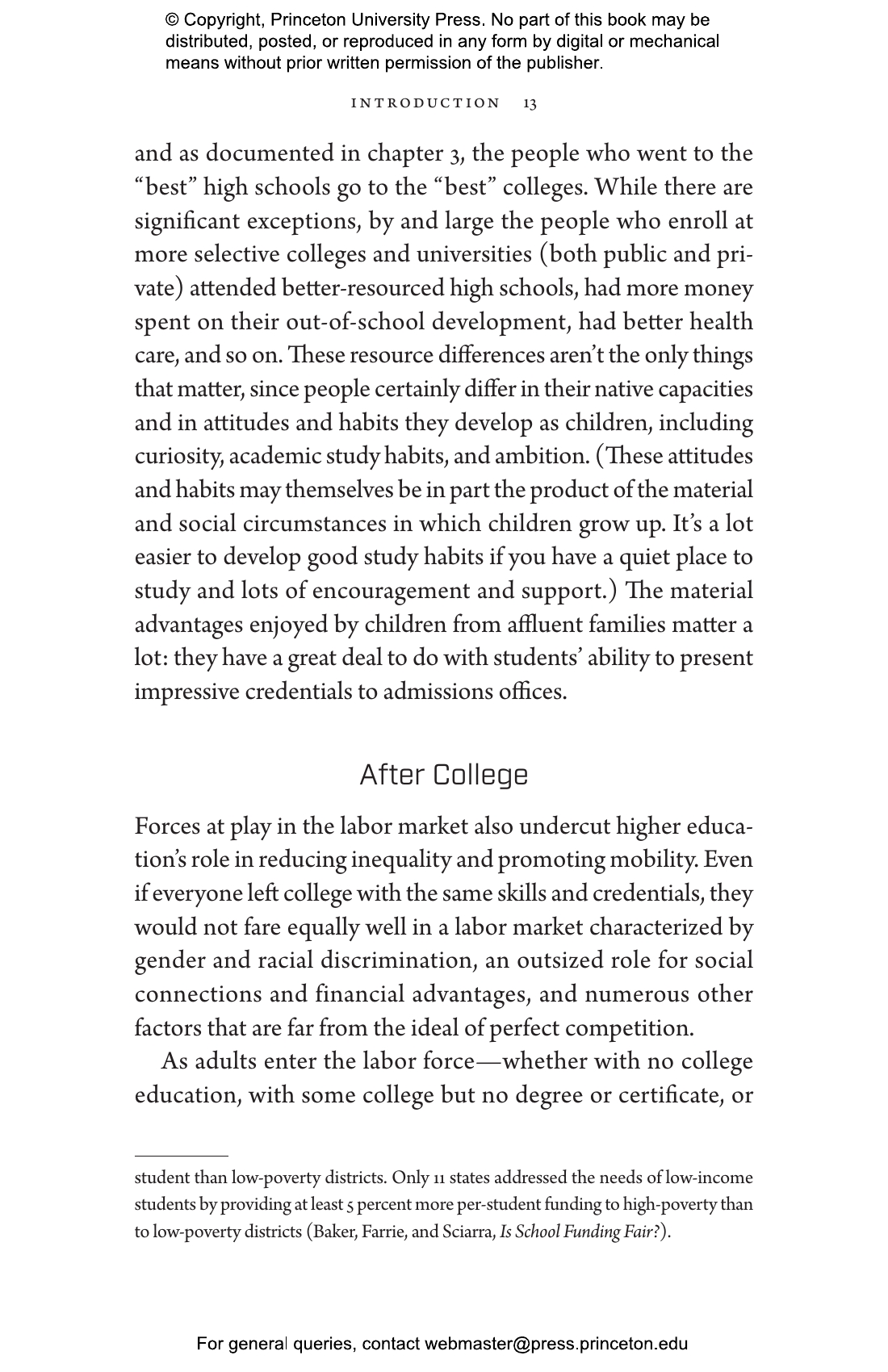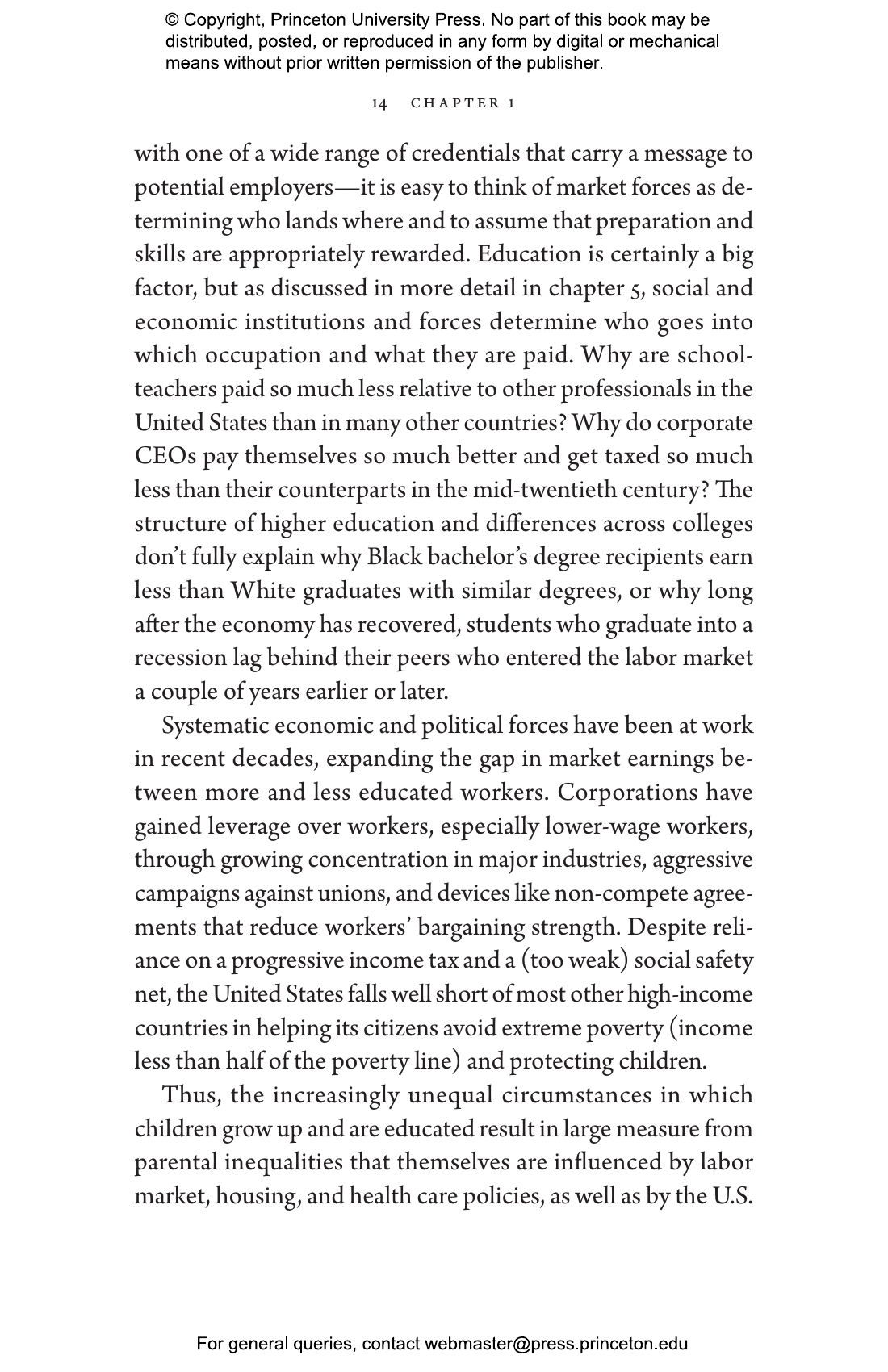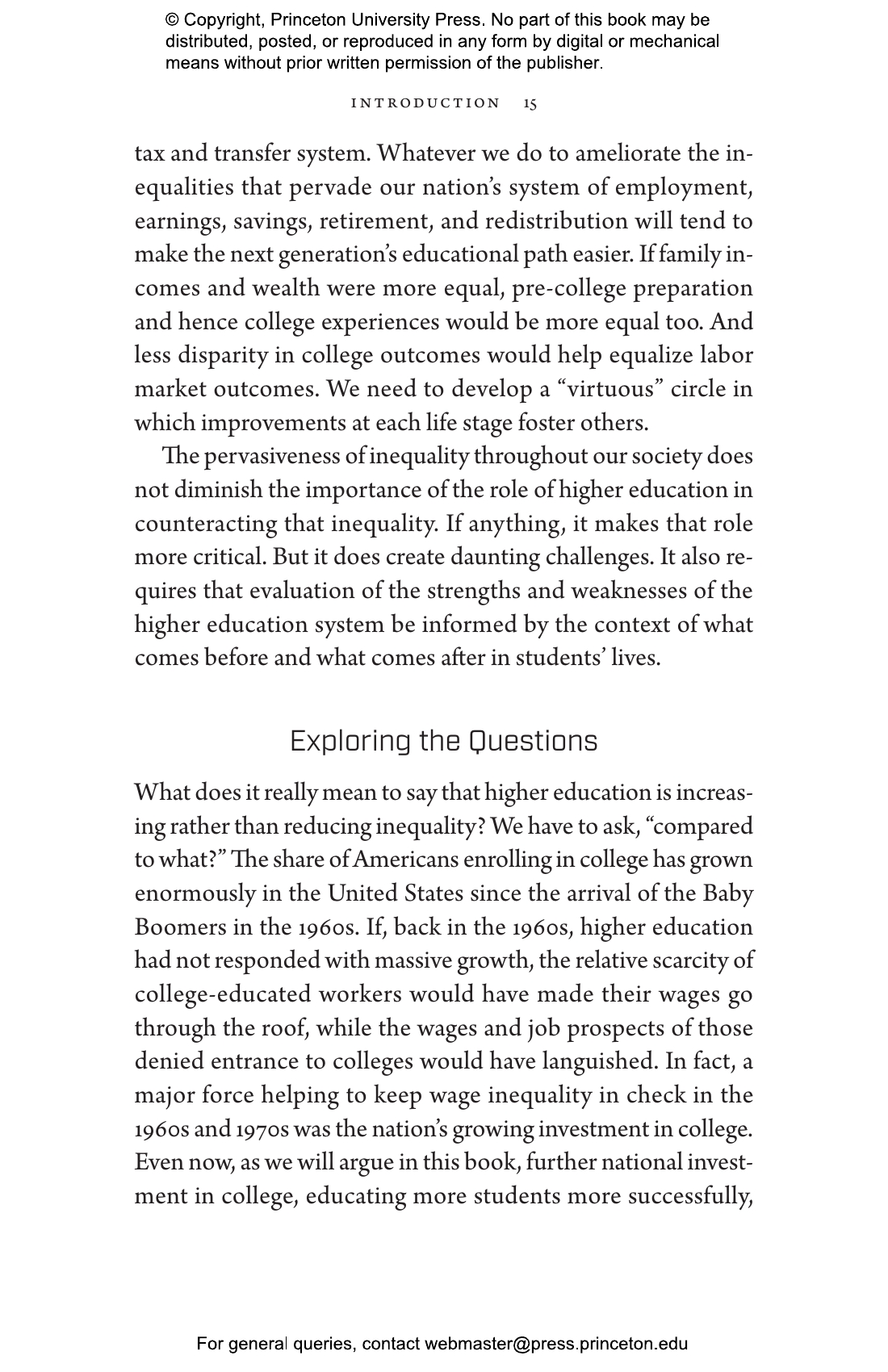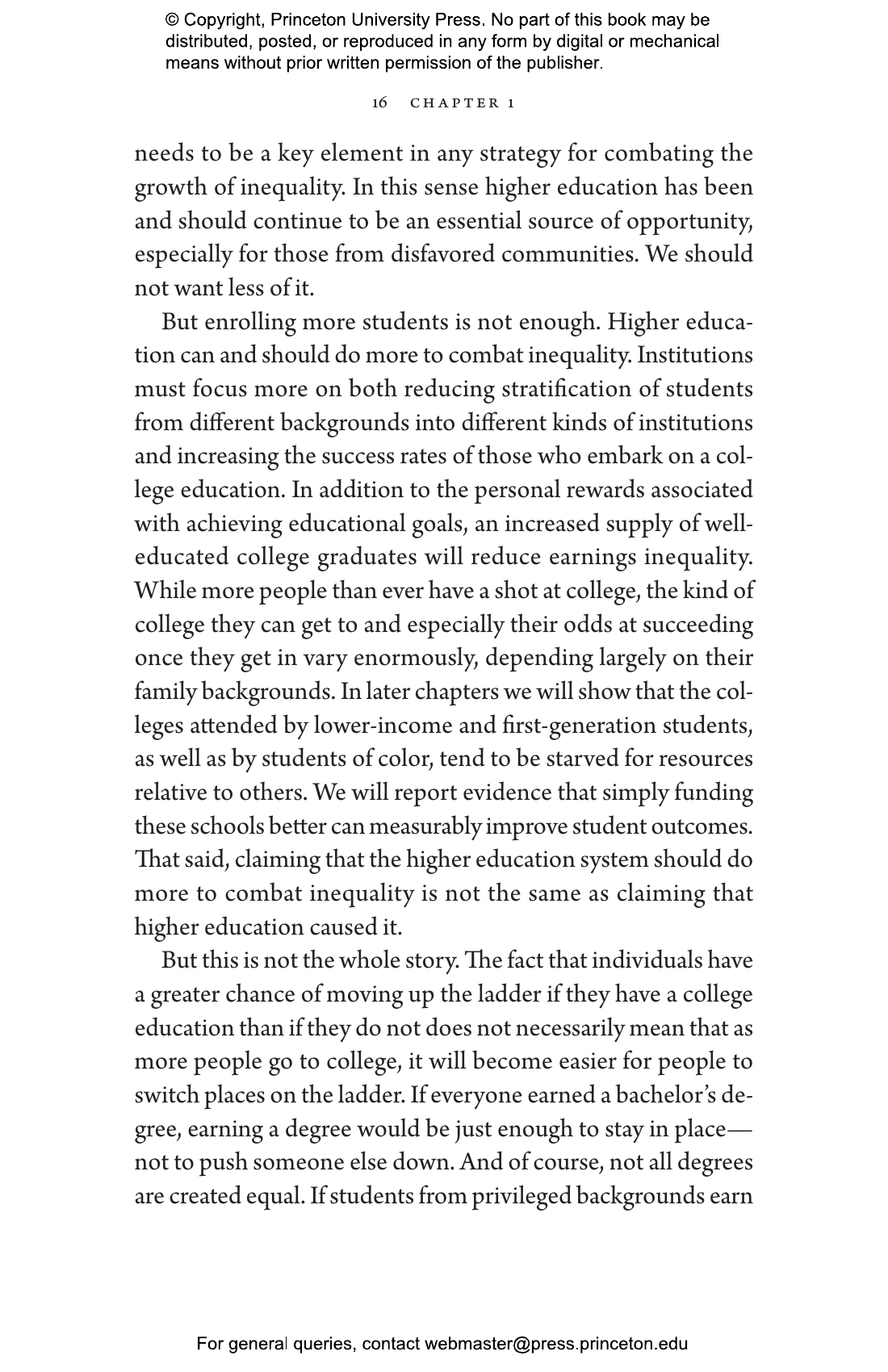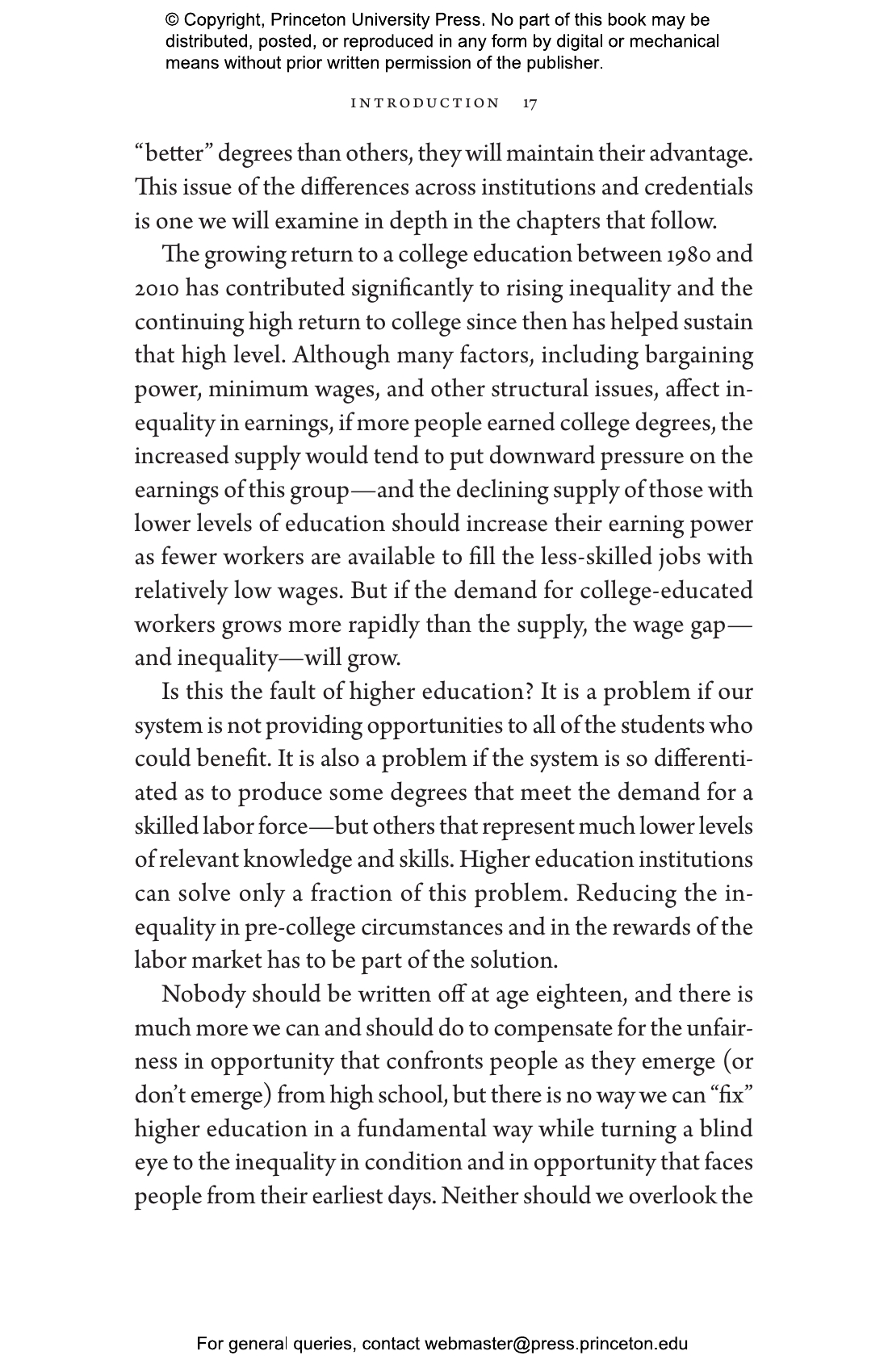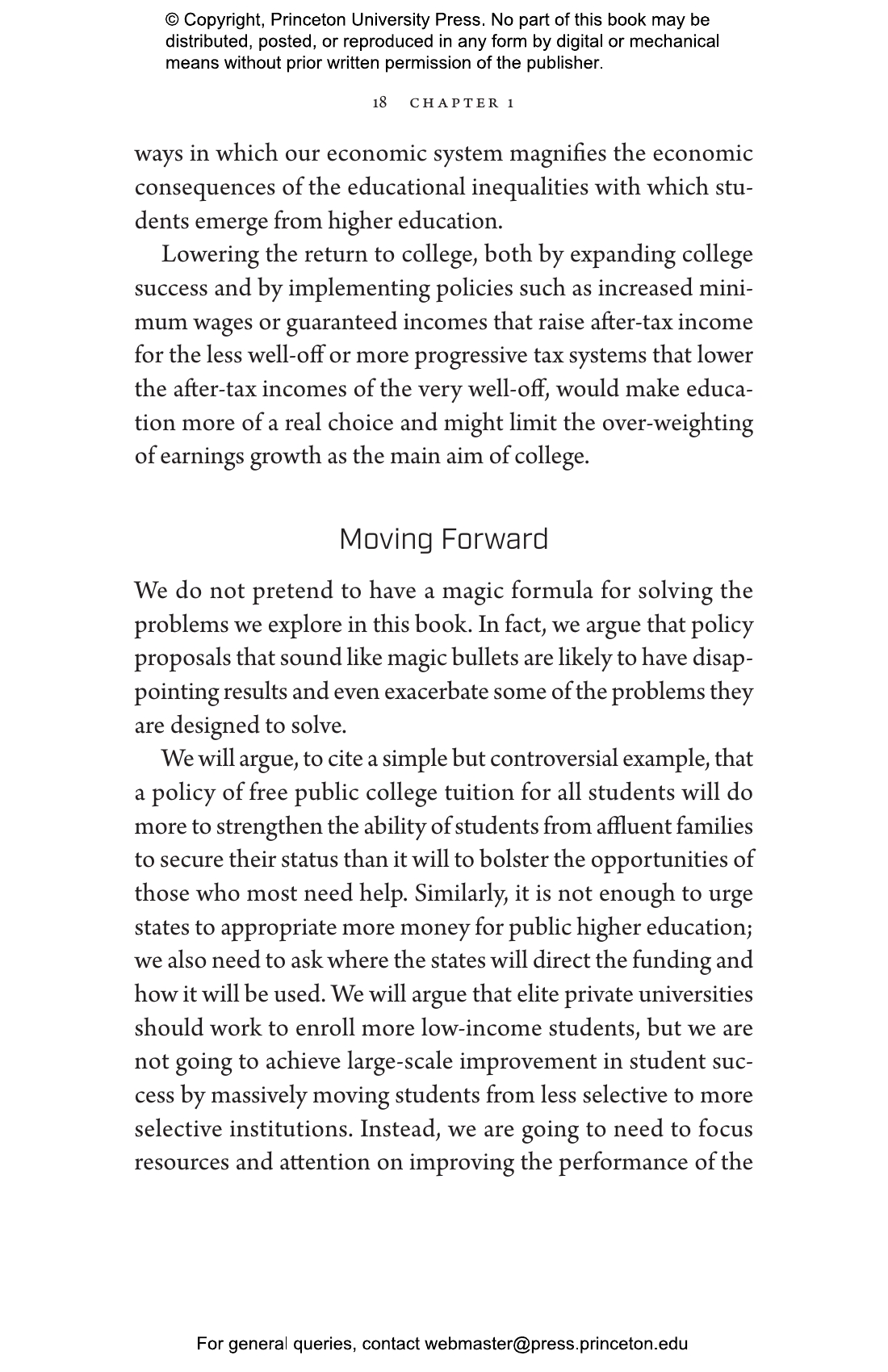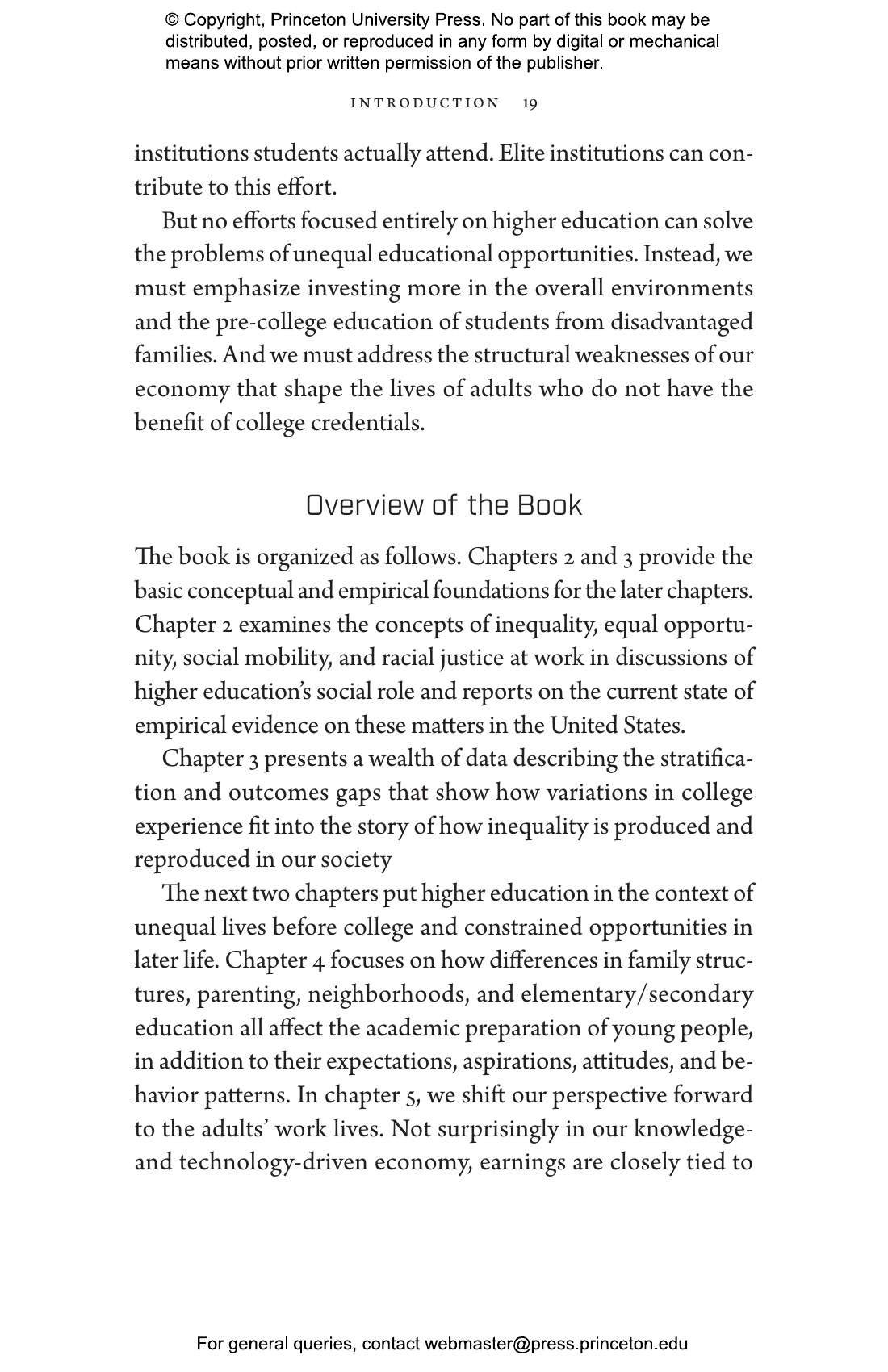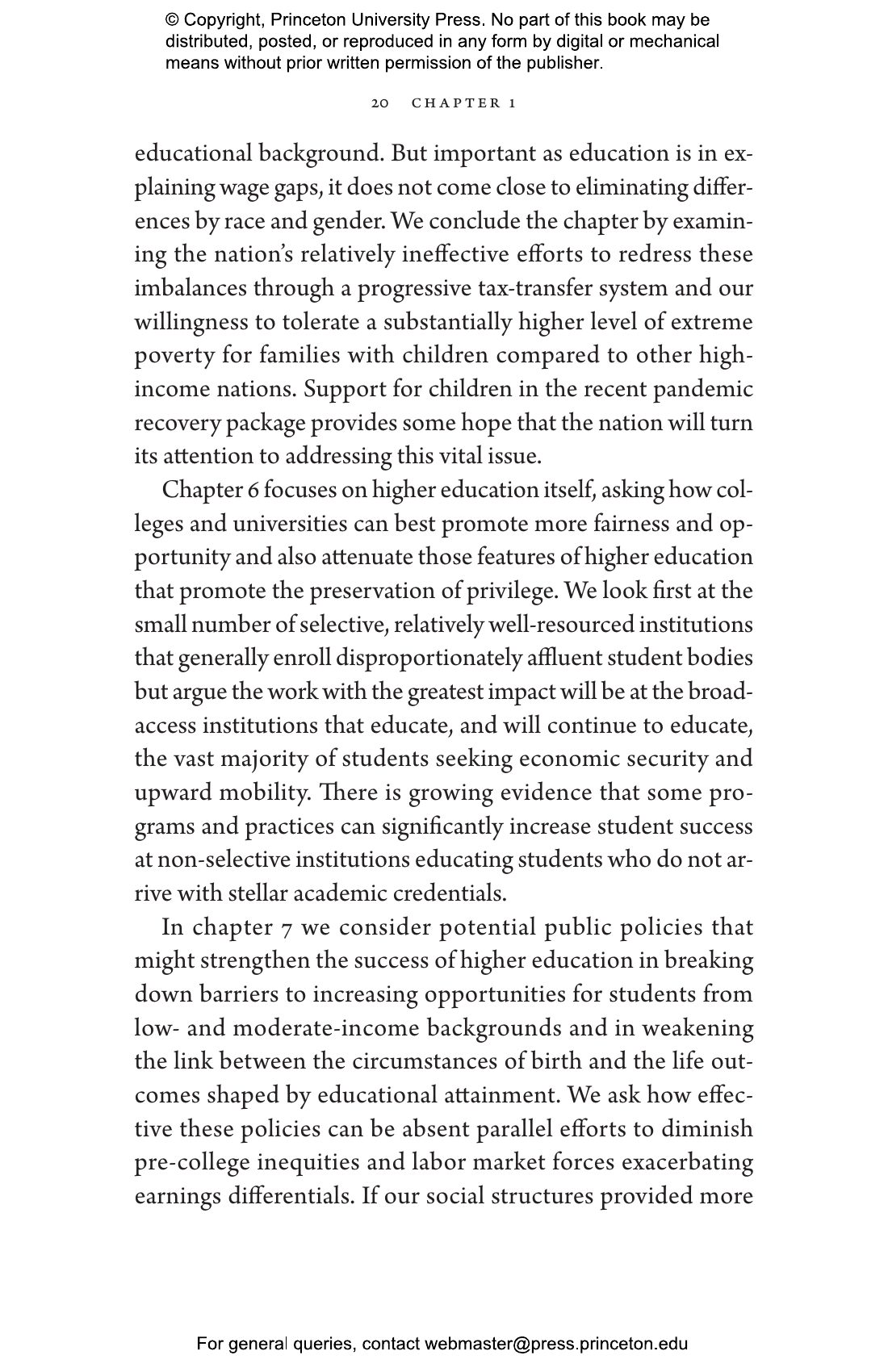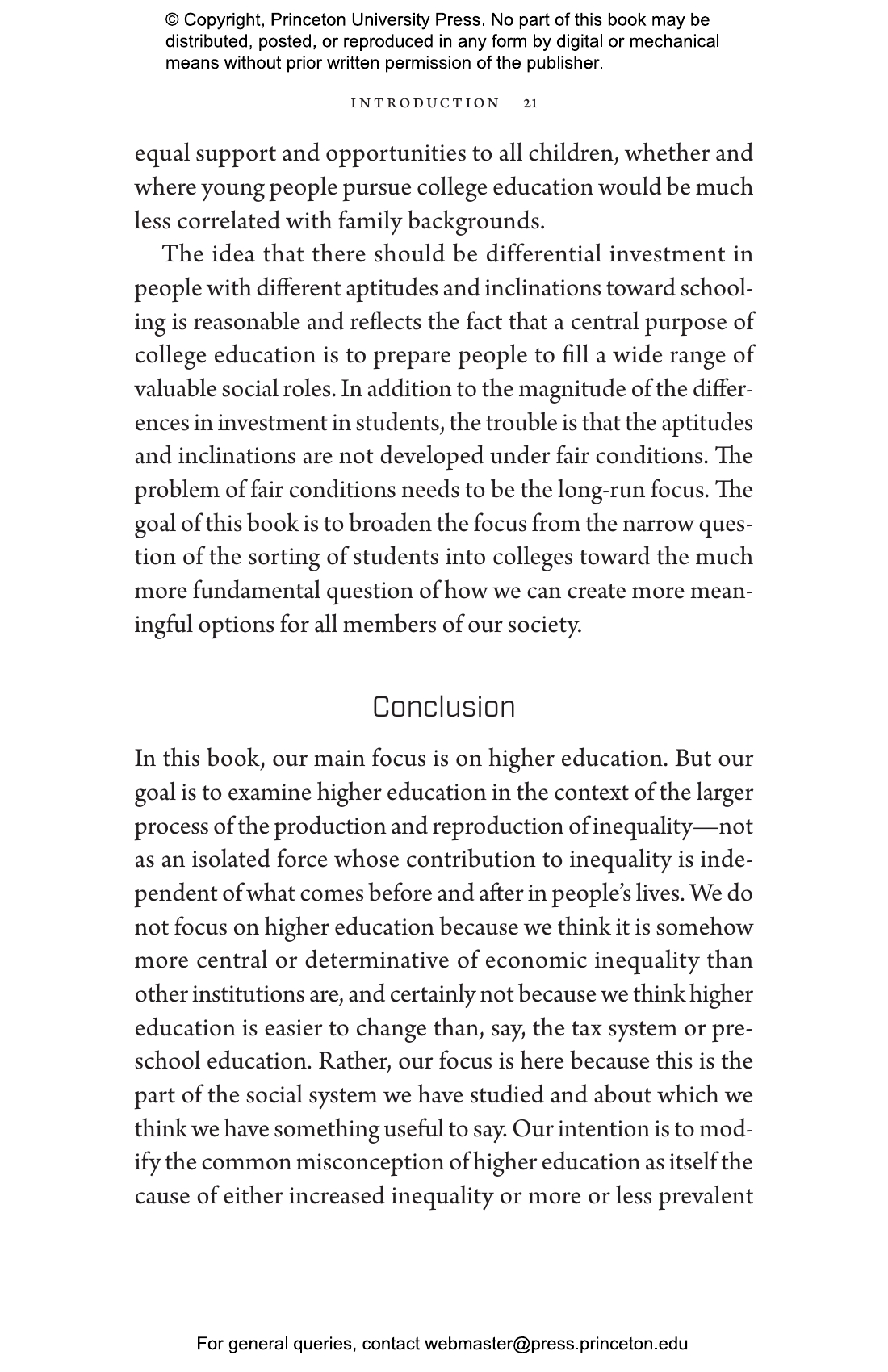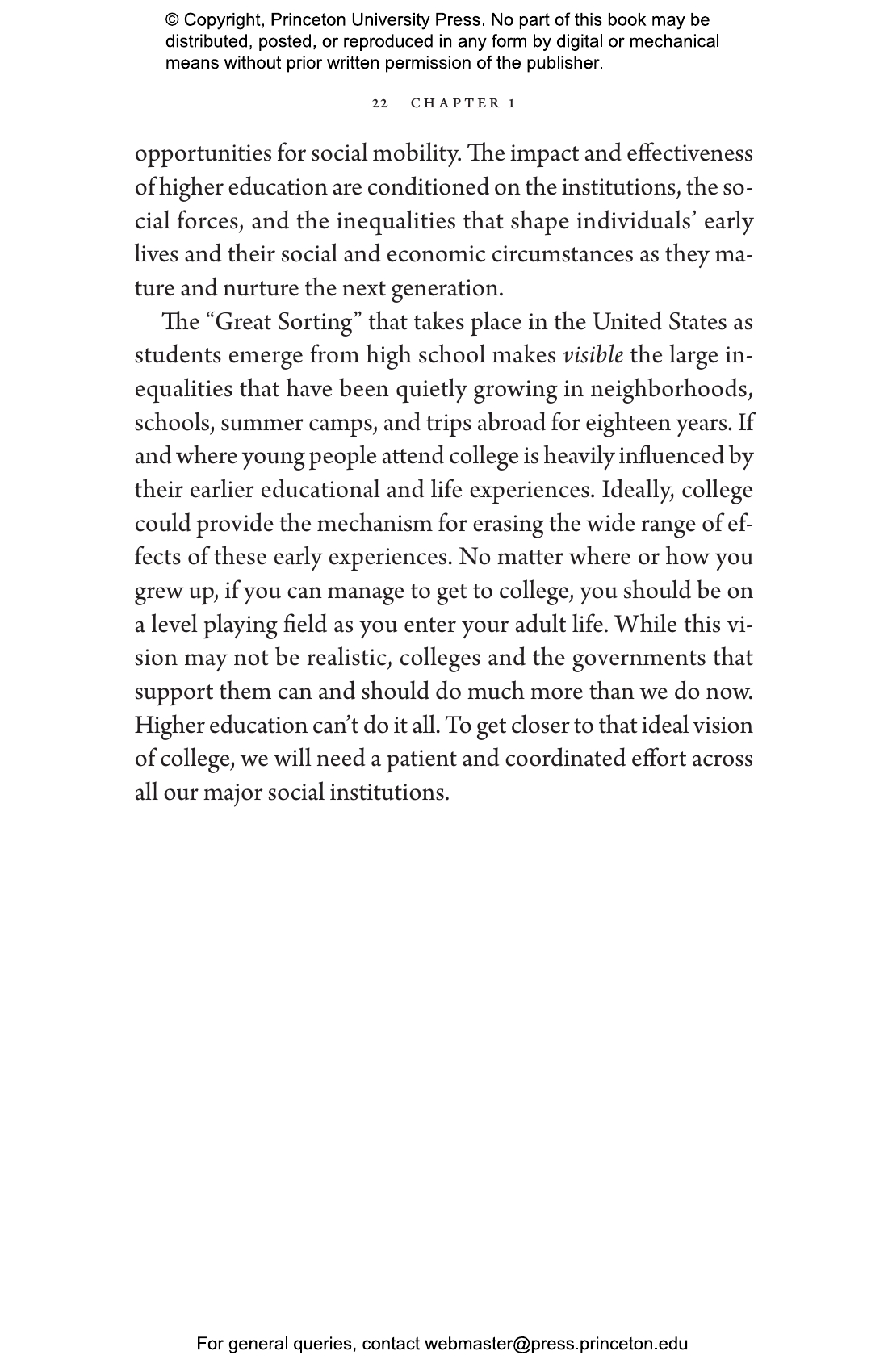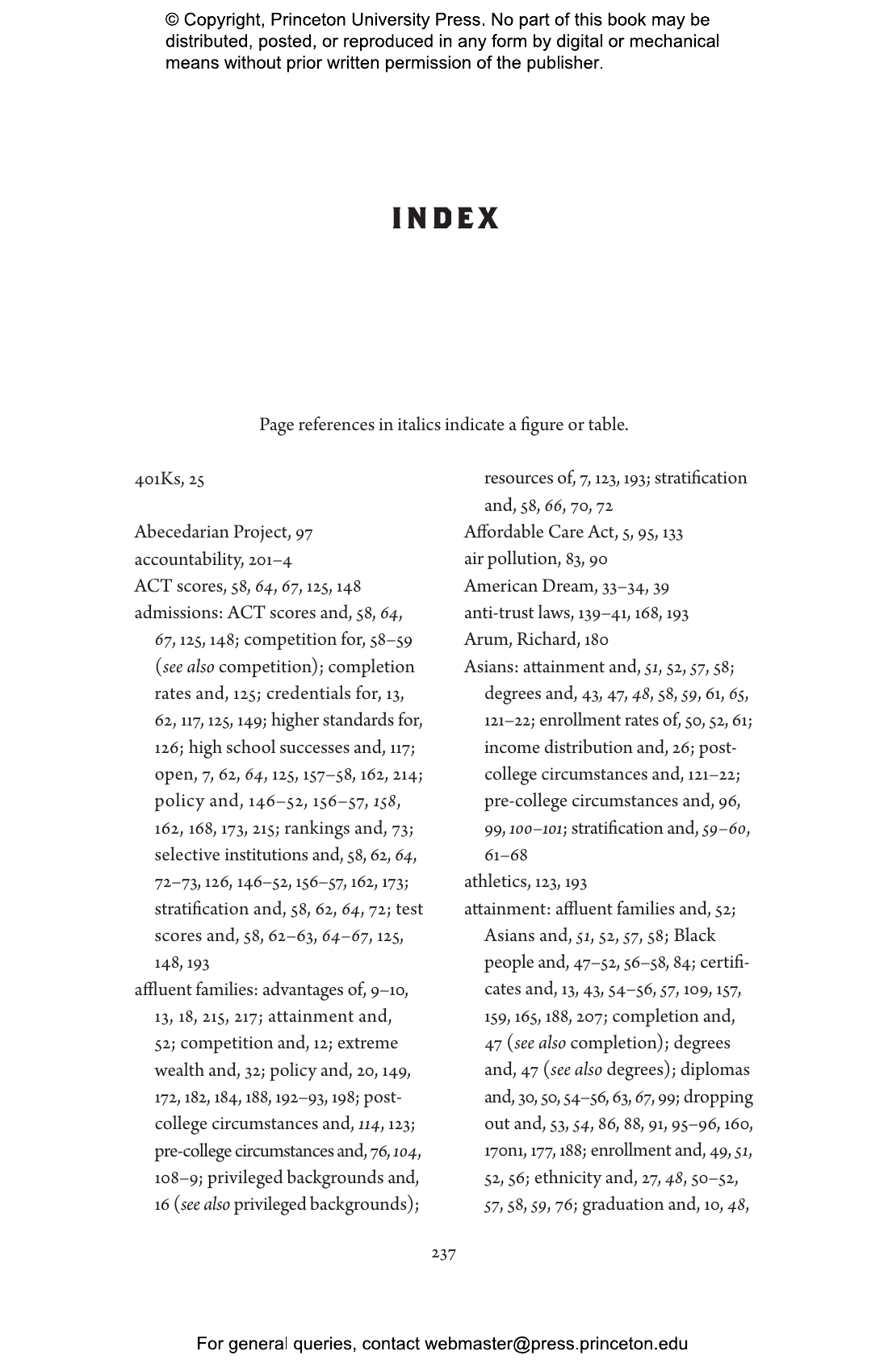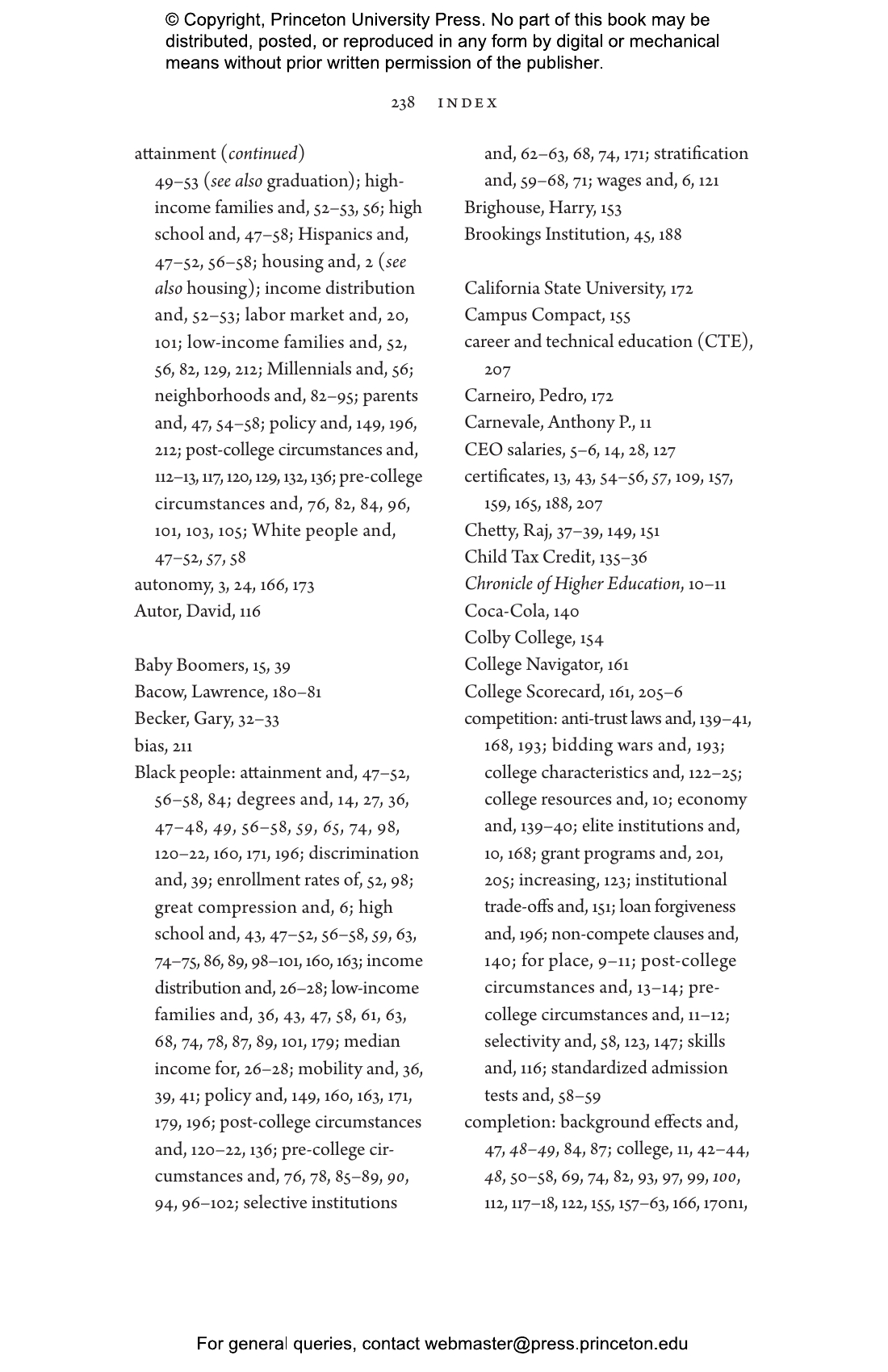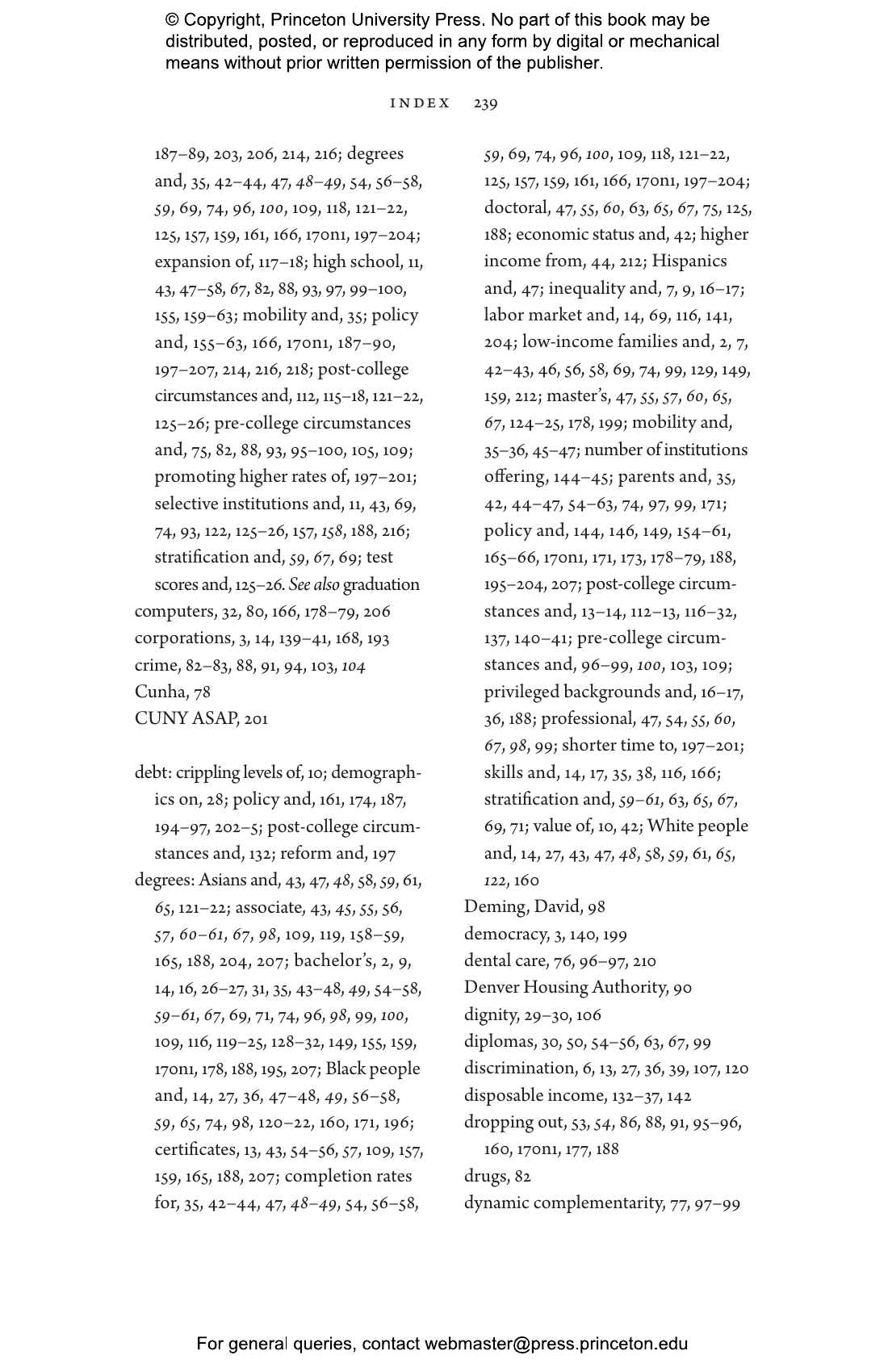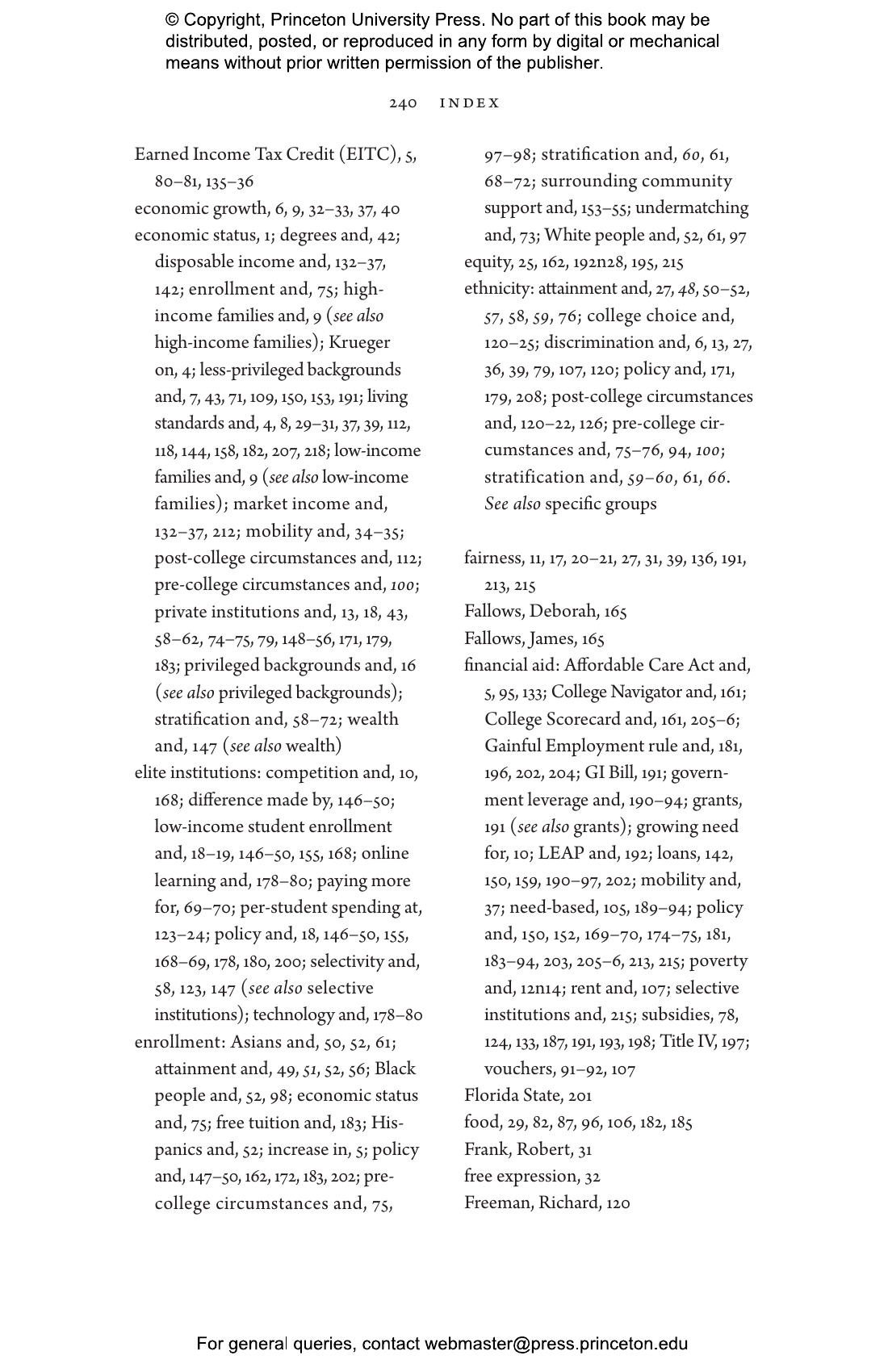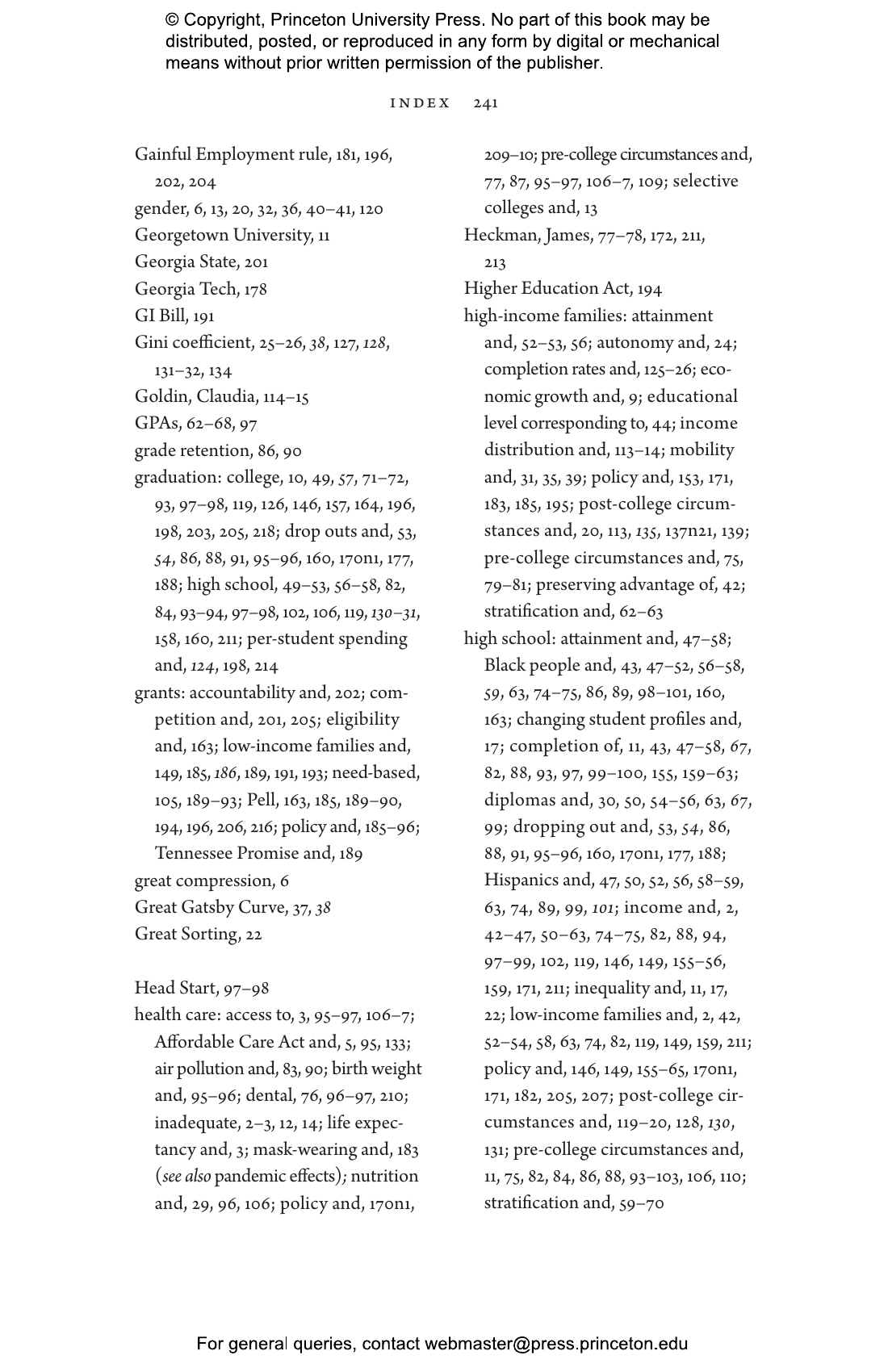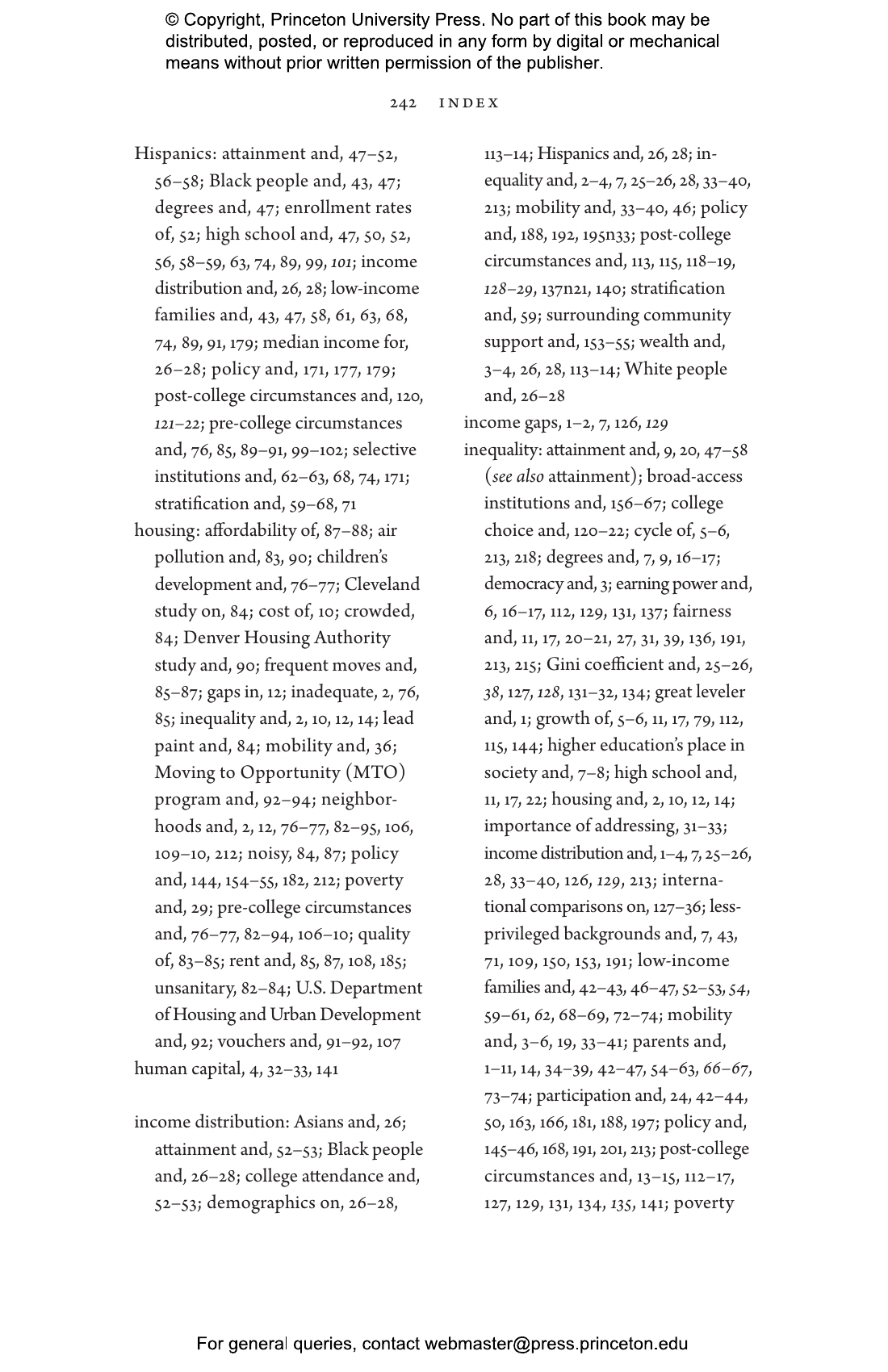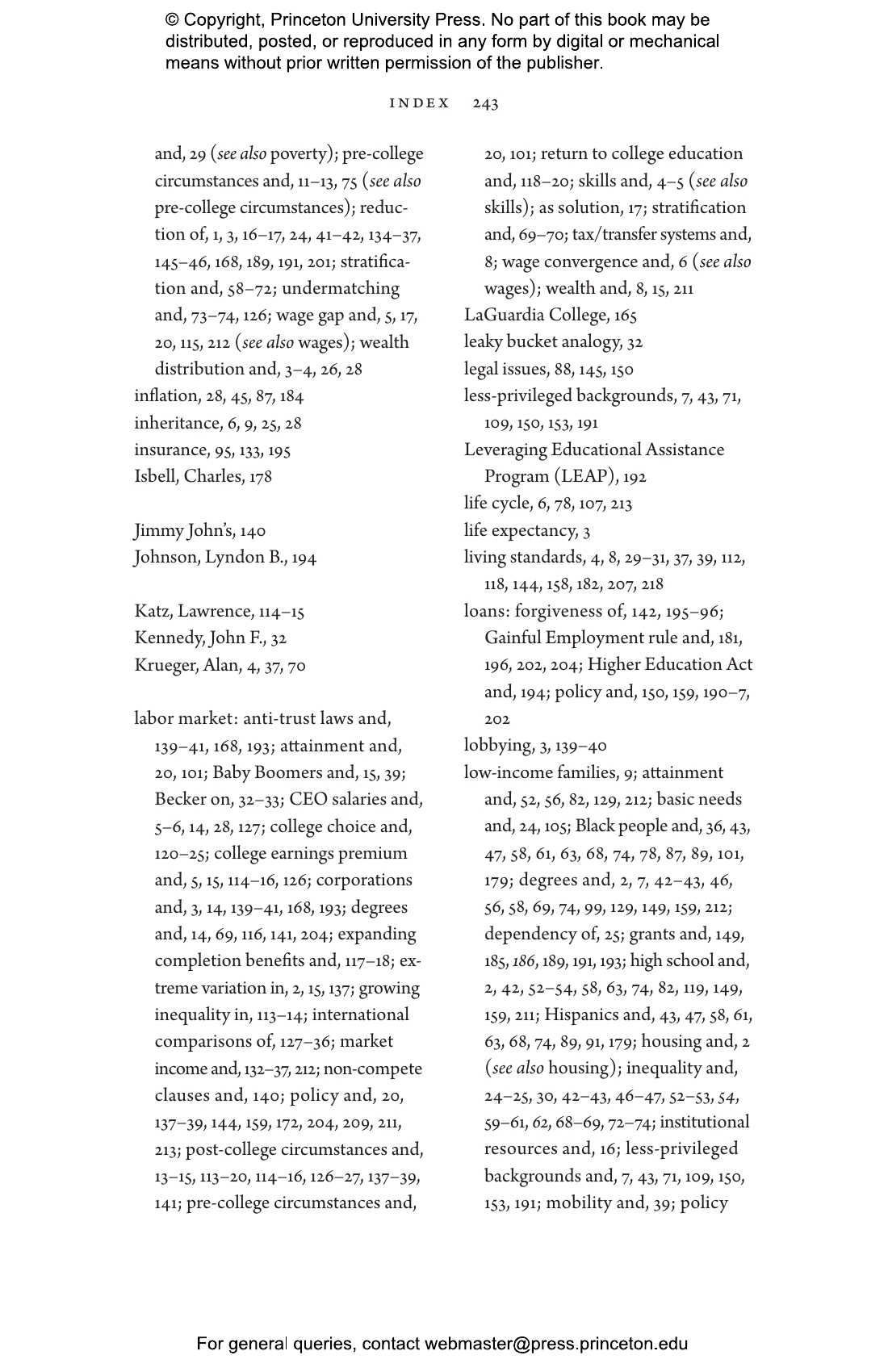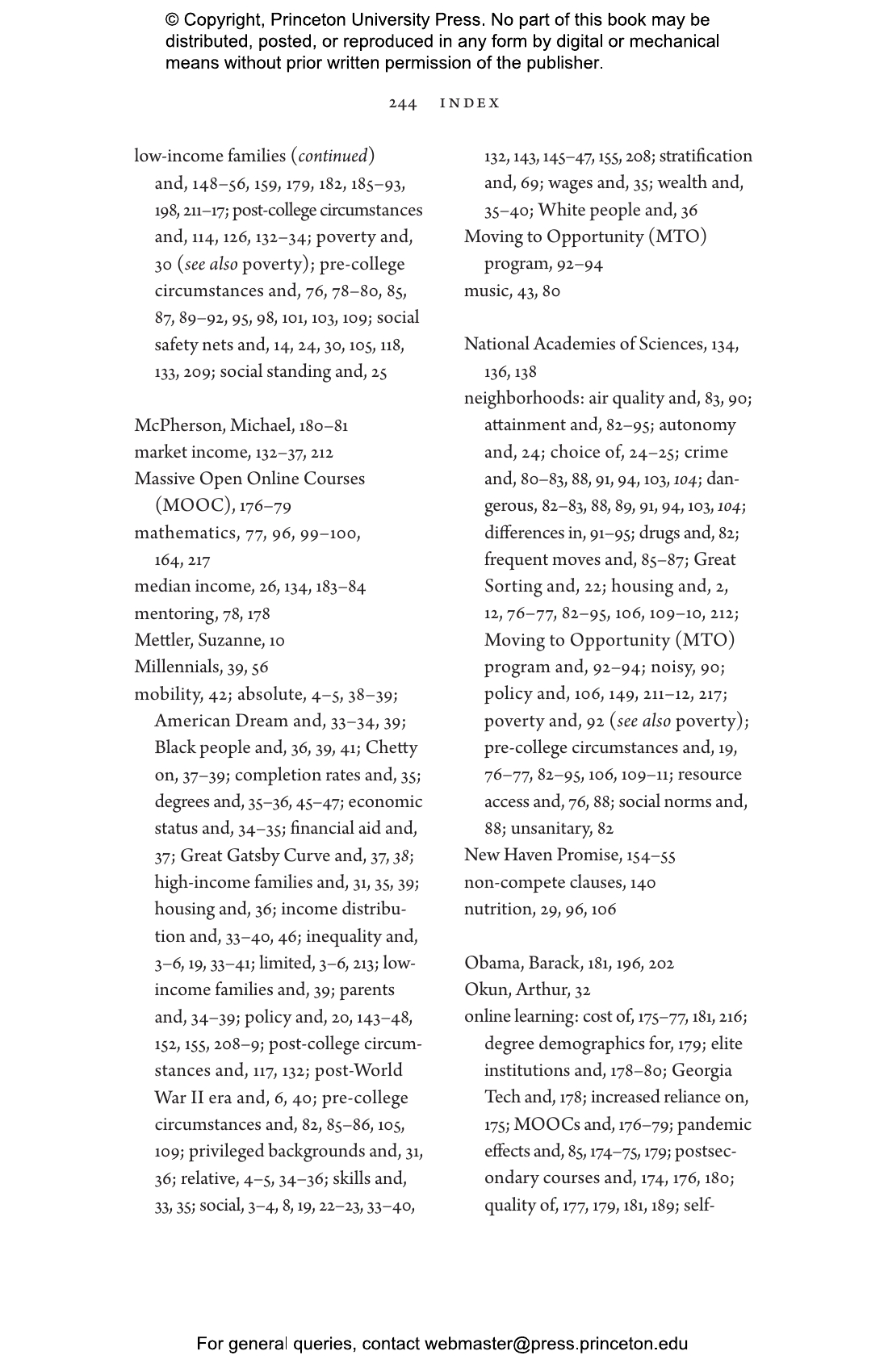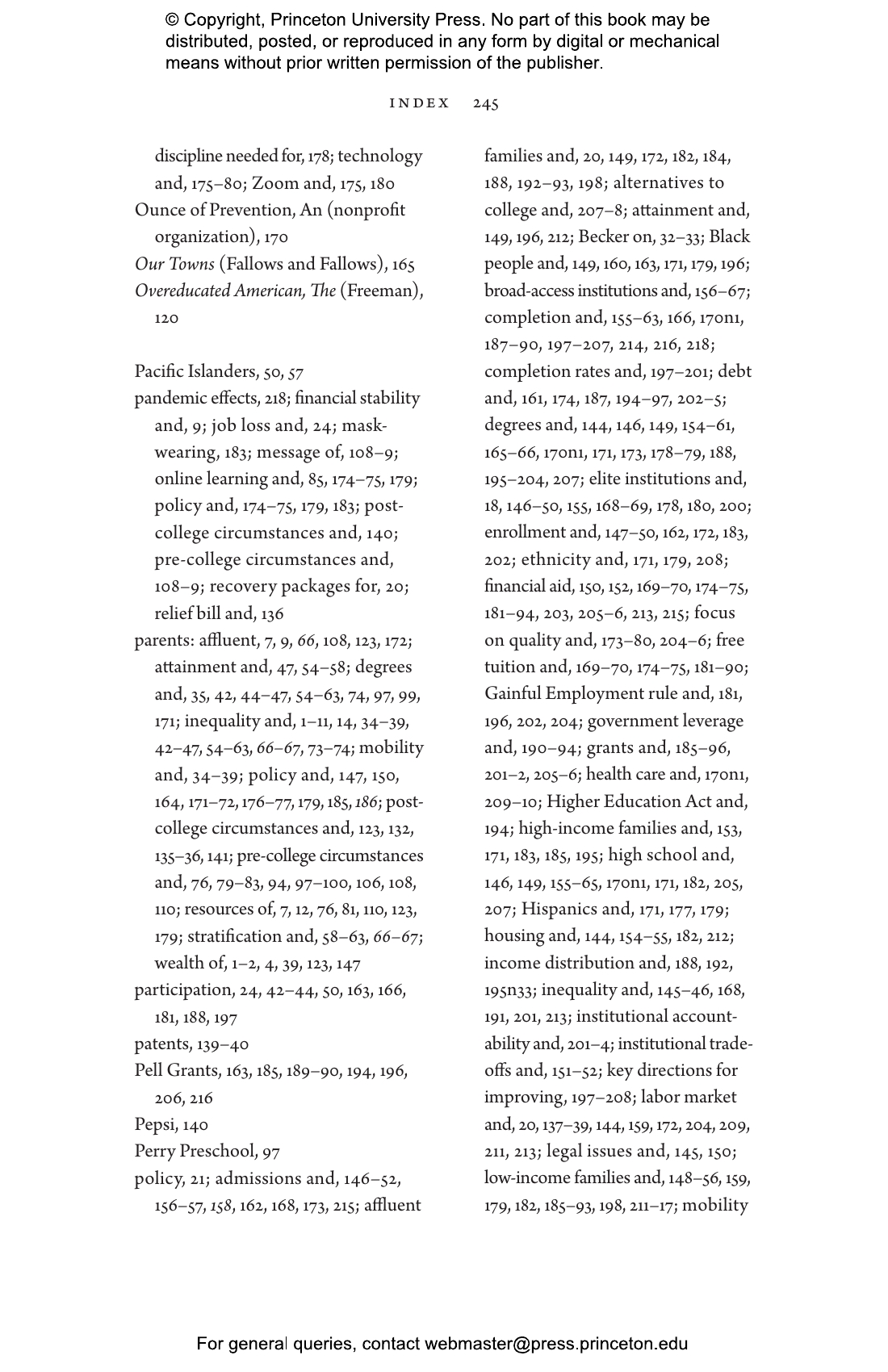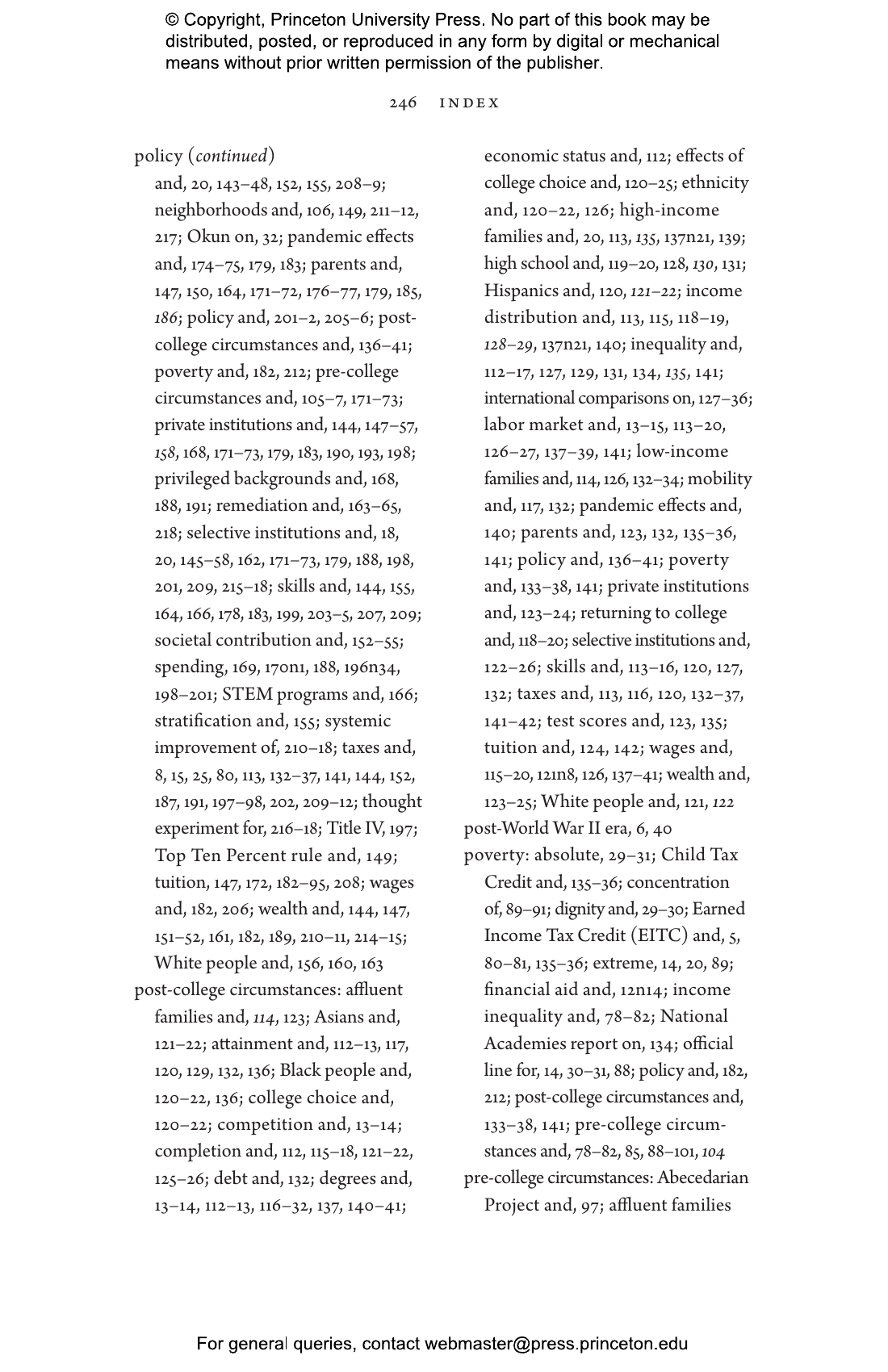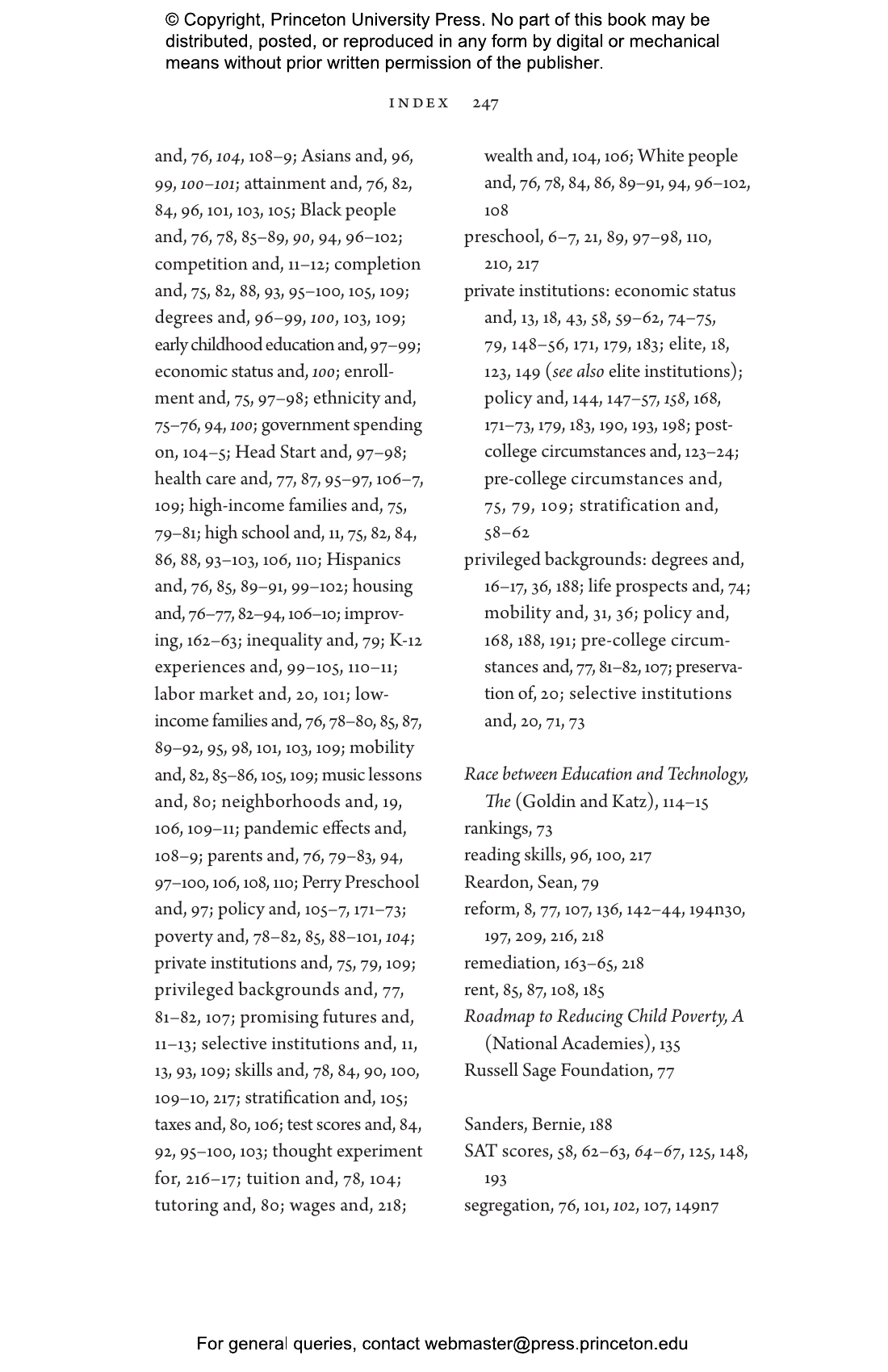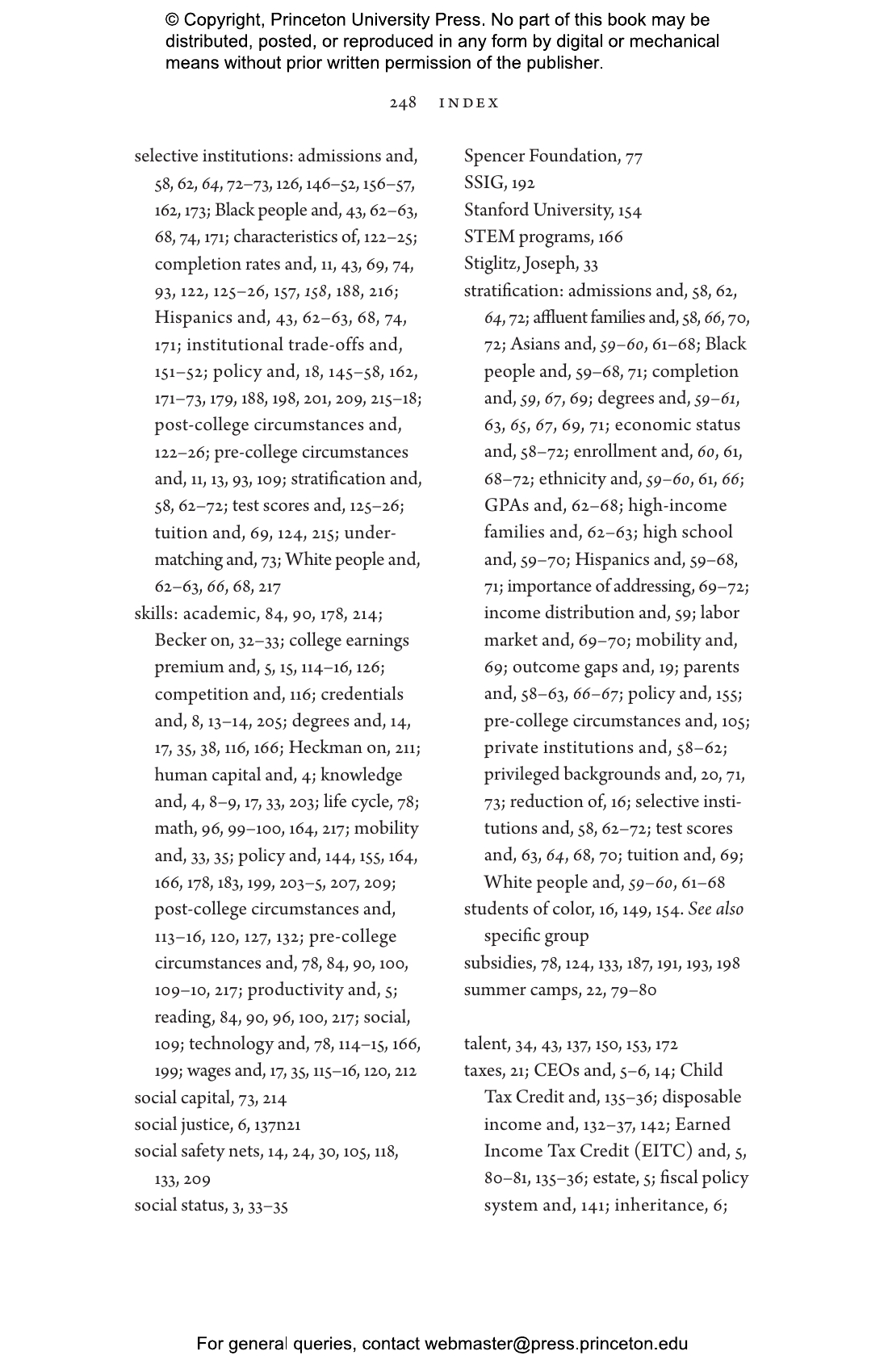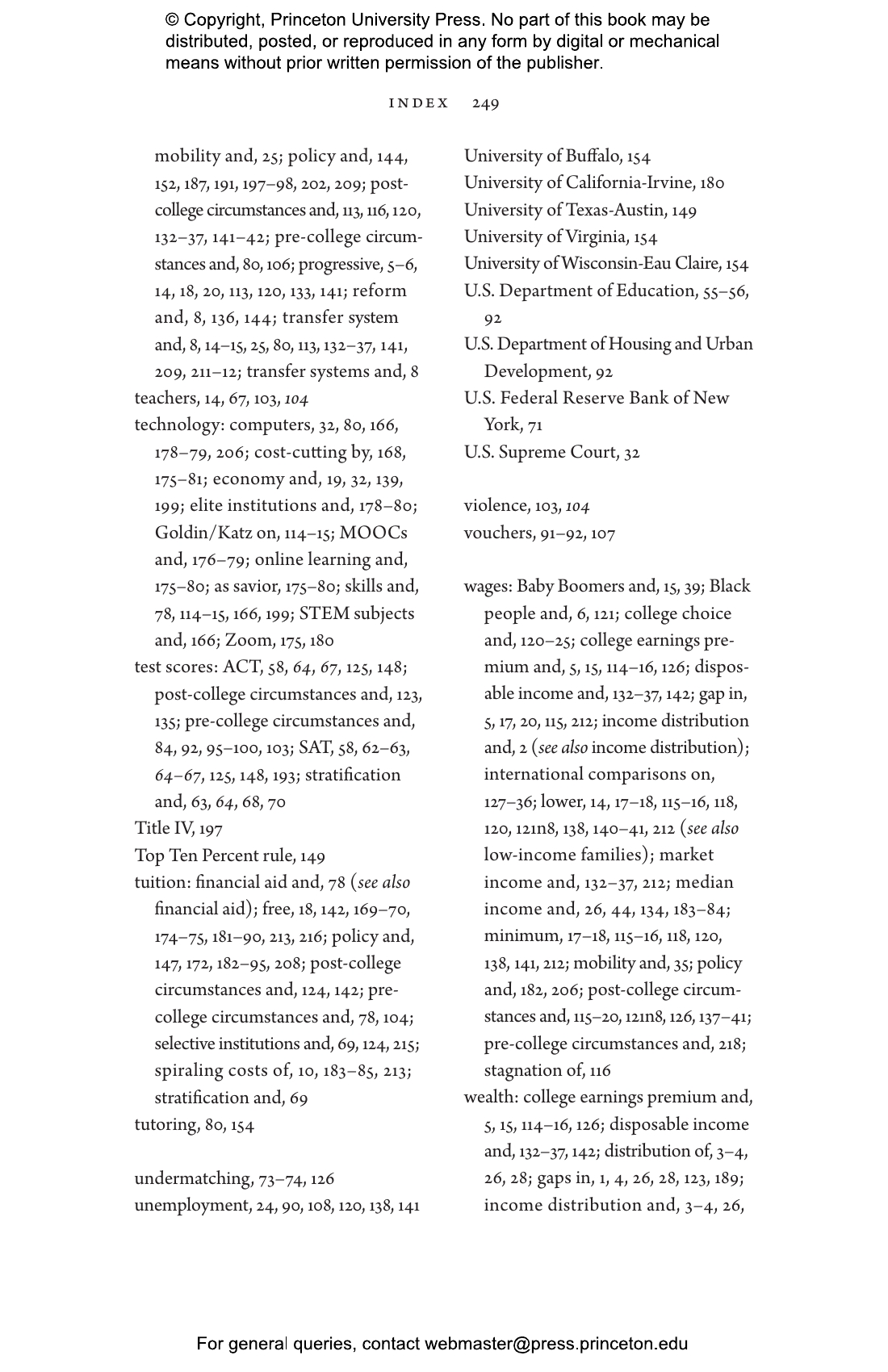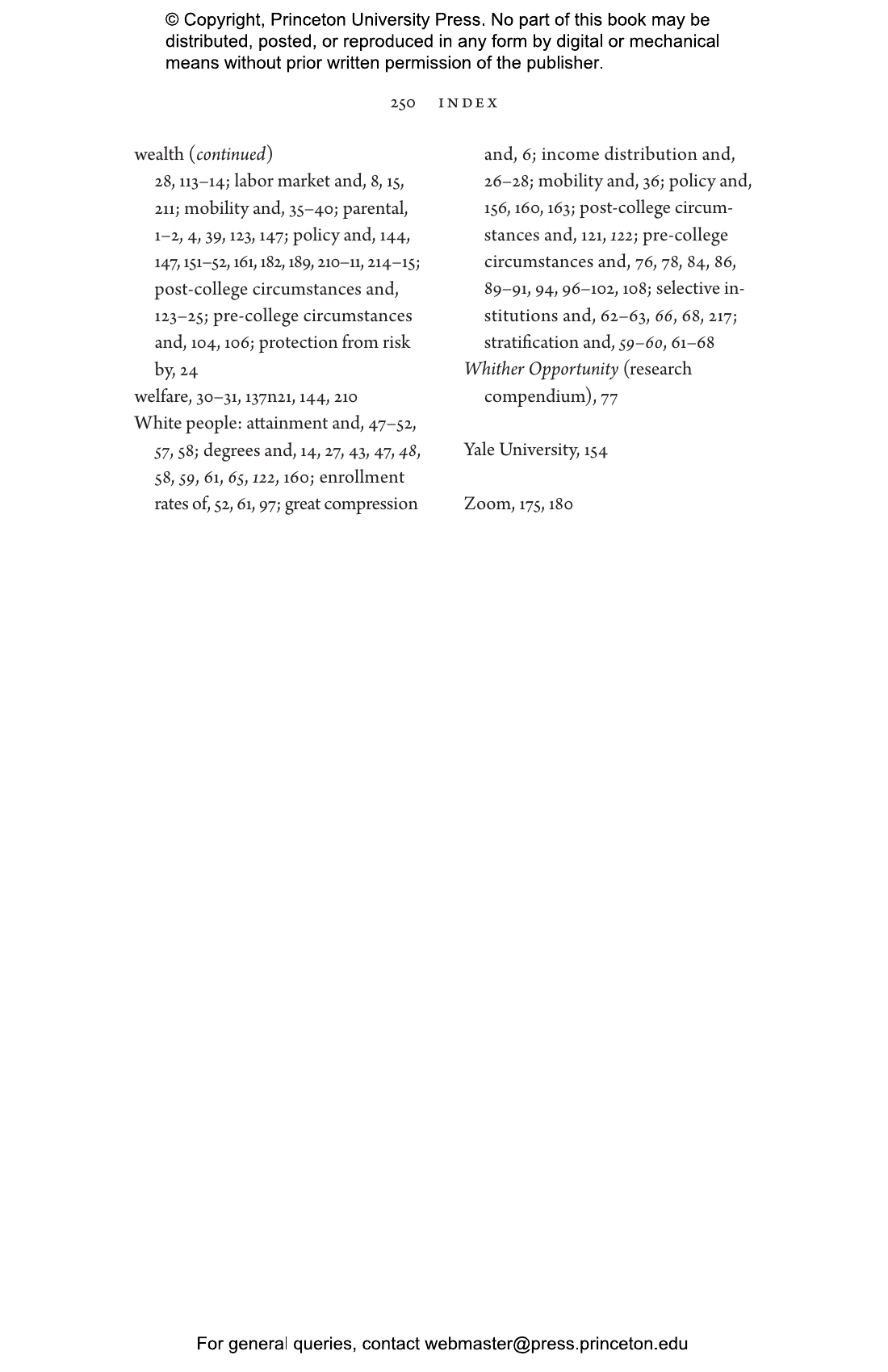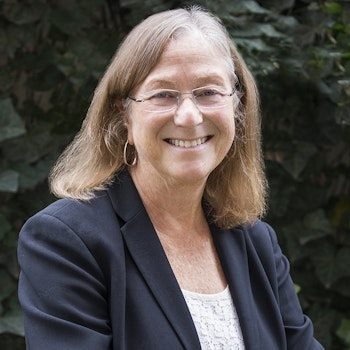We often think that a college degree will open doors to opportunity regardless of one’s background or upbringing. In this eye-opening book, two of today’s leading economists argue that higher education alone cannot overcome the lasting effects of inequality that continue to plague us, and offer sensible solutions for building a more just and equitable society.
Sandy Baum and Michael McPherson document the starkly different educational and social environments in which children of different races and economic backgrounds grow up, and explain why social equity requires sustained efforts to provide the broadest possible access to high-quality early childhood and K–12 education. They dismiss panaceas like eliminating college tuition and replacing the classroom experience with online education, revealing why they fail to provide better education for those who need it most, and discuss how wages in our dysfunctional labor market are sharply skewed toward the highly educated. Baum and McPherson argue that greater investment in the postsecondary institutions that educate most low-income and marginalized students will have a bigger impact than just getting more students from these backgrounds into the most prestigious colleges and universities.
While the need for reform extends far beyond our colleges and universities, there is much that both academic and government leaders can do to mitigate the worst consequences of America’s deeply seated inequalities. This book shows how we can address the root causes of social injustice and level the playing field for students and families before, during, and after college.
Sandy Baum is a nonresident senior fellow at the Center on Education Data and Policy at the Urban Institute and professor emerita of economics at Skidmore College. Her books include Student Debt. Michael McPherson is president emeritus of the Spencer Foundation and Macalester College. His books include Lesson Plan (Princeton). Twitter @ctrloption
"Can College Level the Playing Field? is a clear and focused analysis of the role of higher education in contributing to inequality in the United States – and what can be done about it. . . . A redemptive argument for a just and fair system of higher education."—Christopher Martin, Theory and Research in Education
“Baum and McPherson provide a novel and convincing analysis of the role higher education plays in our unequal society and propose realistic policies and practices that can help us to achieve lasting change. This invaluable book is essential reading for college and university leaders, for policymakers who want to understand the enterprise they oversee, and for anyone concerned with making our society less unjust.”—Harry Brighouse, coauthor of Educational Goods
“In this gem of a book, Baum and McPherson explore the disturbing underbelly of America’s system for handing out economic opportunity. Combining their deep expertise about higher education, these economists present an assessment that is sober without being dismal, dismissing quick fixes but offering hope based on sensible long-term policies.”—Charles T. Clotfelter, Duke University
“This highly readable, eye-opening book affirms the essential contributions of higher education in the United States while also showing why it alone cannot ensure upward mobility and economic growth. It is also a call to action, identifying policies to broaden the impact of institutions and situate them within a more equitable and productive economy.”—David Baime, senior vice president for government relations, American Association of Community Colleges
“This book’s unique contribution is to examine higher education not in isolation but in the context of inequality in American society, from children’s earliest experiences in life to what they encounter as adults in the labor market. Baum and McPherson draw on this more complete picture of higher education’s role to detail a set of institutional actions and policy changes that would foster a more equal society.”—Matthew M. Chingos, coauthor of Game of Loans: The Rhetoric and Reality of Student Debt
“Written by two of the nation’s most respected experts on education, this book rejects the increasingly popular idea that reforms in higher education can level the playing field, explaining why we must pay more attention to opportunity-enhancing measures in the precollege years and the labor market. Baum and McPherson provide a well-informed, realistic, and comprehensive account of how to create more opportunity in America.”—Isabel Sawhill, author of The Forgotten Americans: An Economic Agenda for a Divided Nation
“This important contribution provides not just a highly readable description of the current state of American higher education, it challenges us to do better. As the authors show, the stakes are high. May this compelling call to action lead to lasting and meaningful change.”—Morton Schapiro, president of Northwestern University
